Call Today to Schedule an Appointment: 212-319-5282
Allergy, Asthma and Sinusitis P.C
 Our practice, Advanced Allergy, Asthma and Sinusitis P.C., is located in the heart of Manhattan, New York, just a block away from Grand Central Station. It is a new type of practice dedicated to providing the most up-to-date treatment for adult and pediatric patients with allergy, asthma, sinus disease or disorders of the immune system. We offer world-class expertise and the highest standards in diagnostic testing and treatment for allergy, asthma and sinus disease.
Our practice, Advanced Allergy, Asthma and Sinusitis P.C., is located in the heart of Manhattan, New York, just a block away from Grand Central Station. It is a new type of practice dedicated to providing the most up-to-date treatment for adult and pediatric patients with allergy, asthma, sinus disease or disorders of the immune system. We offer world-class expertise and the highest standards in diagnostic testing and treatment for allergy, asthma and sinus disease.
Our treatment plans are based upon the latest practice parameters and recommendations in our field as published by the American Academy of Allergy, Asthma and Immunology and the American College of Allergy, Asthma and Immunology.
Best Allergist NYC Midtown
At Advanced Allergy, Asthma and Sinusitis P.C., we make extraordinary efforts to stay current in our field by attending relevant regional, national and international conferences and reviewing the current literature, textbooks and online databases. Dr. Boyan Hadjiev is fellowship-trained and board-certified in Internal Medicine and Allergy and Immunology. We firmly believe that having a board certification makes the physician more proficient and knowledgeable in the field of allergy/immunology and sinus disease.
Please visit our Common Allergic Problems page for a list of conditions we treat and their descriptions.
Telemedicine Services
Visit our main site at www.drsneeze.com
Blog Posts are Below:
Allergy Shots vs. Allergy Drops: Which Is Better for Long-Term Relief?
Allergy shots vs. allergy drops — choosing the right immunotherapy can make a big difference in how effectively you manage long‑term allergies. Both methods aim to retrain your immune system to tolerate allergens, but they differ in how they work, how convenient they are, and how suitable they might be for your lifestyle and sensitivity.

What Are Allergy Shots and Allergy Drops?
- Allergy Shots (Subcutaneous Immunotherapy – SCIT): Involves injecting gradually increasing doses of allergen extracts under the skin over time.
- Allergy Drops (Sublingual Immunotherapy – SLIT): Allergen extracts (liquid drops or tablets) are placed under the tongue daily, and absorbed through the mucosa — no needles needed.
How They Work: Treating the Root Cause, Not Just Symptoms
Both SCIT and SLIT belong to allergen immunotherapy — a long‑term approach that modifies your immune system’s response to allergens. Over months to years, immunotherapy can reduce sensitivity, decrease reliance on medications, and often provide long-lasting relief.
Unlike antihistamines or nasal sprays, which only address symptoms, immunotherapy targets the underlying immune reaction.
Comparing Efficacy: Shots vs. Drops
✅ Allergy Shots (SCIT):
- Some studies and clinical experience suggest SCIT may produce stronger and more sustained improvement in allergy symptoms, especially for year‑round (perennial) allergies like dust mites.
- SCIT has been associated with long-term “disease‑modifying” effects: after 3–5 years of treatment many patients enjoy lasting relief.
- Appropriate for patients with multiple allergens, or when allergies are moderate to severe.
✅ Allergy Drops (SLIT):
- SLIT offers comparable effectiveness to SCIT in many patients (for allergic rhinitis and mild to moderate asthma), with symptom reduction and decreased need for medications.
- SLIT seems especially favorable in children or people concerned about injections or frequent clinic visits.
A direct comparison meta‑analysis found no significant difference in overall efficacy between SCIT and SLIT in certain subsets of patients — though some data suggest SCIT may have a slight edge in long-term symptom control after several years.
Safety & Side Effects
- SCIT (Shots): Because injections introduce allergens directly into the bloodstream, there is a small but real risk of systemic reactions (rarely severe, such as anaphylaxis). For this reason, shots must be administered under medical supervision, with observation afterward.
- SLIT (Drops/Tablets): Side effects are generally mild — e.g., itching or irritation in the mouth or throat — and serious reactions are far less common.
Because of its favorable safety profile and convenience (can be done at home), SLIT is often preferred for children, patients with mild to moderate allergies, or those with needle phobia.
Which Option Is Right for You?
- If you have severe, year‑round allergies or multiple allergen sensitivities, allergy shots (SCIT) may provide more robust, long-term relief.
- If you prefer convenience, fewer side effects, or dislike needles, allergy drops (SLIT) may be favorable — especially for mild to moderate allergic rhinitis or asthma.
- For children, busy adults, or those with mild reactions, SLIT’s ease of use and safety could make it the better choice.
- If you have uncontrolled asthma or risk factors for severe reactions, SCIT requires close monitoring — your allergist will advise which is safer.
Ultimately, the “best” treatment depends on your allergy severity, lifestyle, health history, and ability to commit long‑term.
Conclusion: Both Work — It’s About What Fits You Best
Both allergy shots and allergy drops offer real, long-term relief by retraining your immune system, reducing symptoms, and lowering medication dependence. Shots tend to show a slight edge in long-term efficacy, but drops win in convenience and safety.
Your success depends less on the method and more on consistent, years-long commitment under proper guidance.
Ready to Get Started? Schedule a Personalized Evaluation
If you’d like to explore immunotherapy and find out which option is right for you in NYC, contact Dr. Boyan Hadjiev — experienced in both methods and dedicated to customized care:
Allergy, Asthma and Sinusitis P.C
Boyan Hadjiev, MD
30 East 40th Street
Suite 1200
New York, NY 10016
212-319-5282
Is It Allergies or a Sinus Infection? Key Differences Explained
Is it allergies or a sinus infection? Knowing how to tell the difference is essential for getting the right treatment—especially in a place like New York City where both conditions are common. Allergies and sinus infections (sinusitis) share similar symptoms such as nasal congestion, pressure, and headaches, but they have different causes and require different treatments.
This blog explains how to distinguish between the two and what to do if your symptoms persist or worsen.
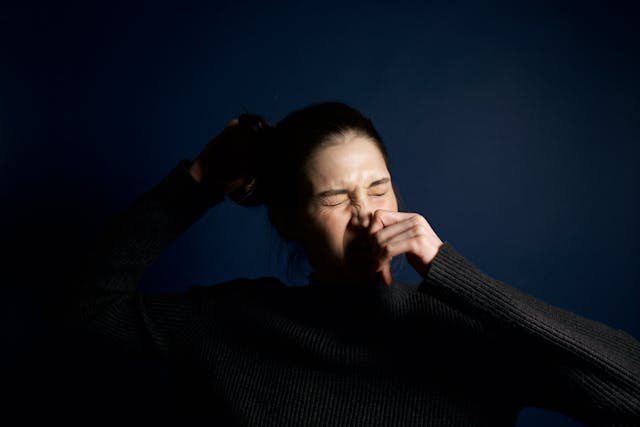
Understanding the Root Causes
- Allergies: Allergic rhinitis is caused by an immune system overreaction to substances like pollen, pet dander, or dust mites. It’s a chronic condition that can flare up seasonally or year-round, depending on your triggers.
- Sinus Infections: Sinusitis is usually caused by a virus, bacteria, or fungus infecting the sinus cavities. It can follow a cold or respiratory infection and may be acute (short-term) or chronic (lasting longer than 12 weeks).
While both conditions inflame the nasal passages, allergies are immune-based, while sinus infections are typically infectious.
Key Symptom Differences
Although the symptoms overlap, there are some telltale signs that can help you tell allergies from sinus infections:
- Fever: Usually present with sinus infections, but not with allergies.
- Discolored Nasal Mucus: Thick yellow or green mucus often points to infection. Clear mucus is more typical of allergies.
- Itchy Eyes: Common with allergies, rare with sinus infections.
- Facial Pain/Pressure: Can occur with both, but is usually more intense and localized in sinus infections.
- Duration: Allergy symptoms may last for weeks or months. Acute sinus infections often resolve within 10–14 days, although chronic cases may linger.
If symptoms worsen over time or persist beyond 10 days with facial pressure and fever, it’s likely an infection.
Diagnosis: What to Expect at the Allergy Clinic
A board-certified allergist will conduct a thorough medical history and may recommend:
- Skin Prick Testing: To identify allergens like mold, pollen, or dust mites.
- Blood Tests (IgE): To confirm allergic responses.
- CT Scan or Nasal Endoscopy: In cases of chronic sinus infections, imaging may be necessary to evaluate structural blockages or chronic inflammation.
Correct diagnosis is essential to avoid using antibiotics when they’re unnecessary or ineffective.
Treatment Options for Each Condition
Allergy Treatment Options:
- Antihistamines and nasal corticosteroids to reduce symptoms.
- Decongestants for temporary relief of nasal swelling.
- Allergy immunotherapy (shots or drops) to desensitize the immune system over time.
- Environmental controls like HEPA filters and allergen-proof bedding.
Sinus Infection Treatment Options:
- Saline nasal rinses to flush out the sinuses.
- Decongestants to promote sinus drainage.
- Antibiotics (only if a bacterial infection is confirmed).
- Steroid sprays to reduce inflammation in chronic cases.
Patients who suffer from recurring sinus infections may benefit from further evaluation to rule out allergies or structural issues.
When Allergies Lead to Sinus Infections
In some cases, untreated allergies can set the stage for sinus infections. Constant inflammation and mucus buildup create the perfect breeding ground for bacteria. That’s why managing allergies can help prevent sinus problems altogether. Patients who treat their allergies often experience fewer sinus infections and a better quality of life.
Take the First Step Toward Relief
If you’re unsure whether your symptoms are caused by allergies or a sinus infection, don’t guess—get answers from a qualified expert. Schedule a comprehensive evaluation with Dr. Boyan Hadjiev today for personalized allergy and sinus care in NYC.
Allergy, Asthma and Sinusitis P.C
Boyan Hadjiev, MD
30 East 40th Street
Suite 1200
New York, NY 10016
212-319-5282
Best Allergy Treatments for Kids: Pediatric Allergy Care in NYC
Best allergy treatments for kids focus on safety, effectiveness, and long-term quality of life. In a city as active and allergen-rich as New York, having a solid pediatric allergy care plan is especially important — not just to relieve symptoms, but to allow children to play, learn, and grow without constant discomfort. Below is a parent-friendly guide to the most effective approaches for treating childhood allergies.
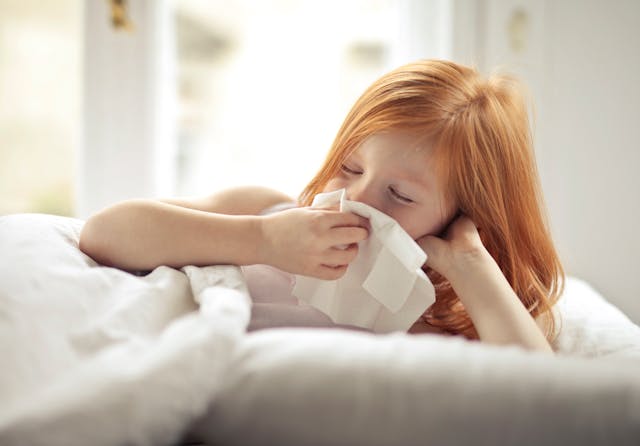
Why Pediatric Allergy Care Needs a Specialized Approach
Children are not small adults — their immune systems, growth patterns, and exposure risks are different. A pediatric allergist can tailor care specifically to a child’s age, development, and unique triggers. Without specialized care, allergy symptoms can interfere with sleep, school performance, play, and overall well-being.
Common Childhood Allergens in NYC
- Environmental Allergens: Pollen, mold spores, dust mites, pet dander, and cockroach allergens — all common in NYC buildings and parks.
- Food Allergens: Milk, peanuts, tree nuts, soy, eggs, wheat, shellfish, and sesame are among the most frequent culprits.
- Indoor Allergens: Dust and mold in older buildings, HVAC systems, or poorly ventilated homes can be year-round issues.
Top Treatment Options for Pediatric Allergies
1. Allergen Avoidance and Environmental Controls
- Use allergen-proof bedding to reduce dust mite exposure.
- Install HEPA filters in the child’s bedroom or central air system.
- Regularly vacuum and dust using HEPA-equipped tools.
- Reduce pet exposure if dander is a known trigger.
2. Age-Appropriate Medications
- Antihistamines: Loratadine or cetirizine are safe for children and relieve runny noses, sneezing, and hives.
- Nasal Sprays: Mild corticosteroid sprays can help with congestion and inflammation in older children.
- Topical Creams: Hydrocortisone or non-steroidal creams to soothe allergy-related skin irritation or eczema.
3. Immunotherapy
For moderate to severe allergies that don’t respond to basic management, immunotherapy may be appropriate:
- Allergy Shots: Gradually train the immune system to tolerate allergens. Usually for children over 5.
- Allergy Drops/Tablets: A non-injection alternative in some cases, especially for pollen-related allergies.
When to See a Pediatric Allergist
A child should be evaluated by a specialist if:
- Symptoms persist despite using over-the-counter meds or basic home care.
- They have multiple food or environmental allergies.
- They have frequent asthma attacks triggered by allergies.
- They suffer from chronic skin rashes, sinus infections, or ear infections.
An allergist can offer a full diagnostic workup including skin testing, blood work, and lung function testing if necessary.
Supporting Your Child’s Quality of Life
Pediatric allergy care isn’t just about treating symptoms — it’s about improving the child’s ability to thrive. This includes helping them:
- Sleep through the night without nasal congestion or coughing fits
- Concentrate in school without allergy-related fatigue or brain fog
- Enjoy activities like sports and playdates without wheezing or fear of exposure
Parents, caregivers, and teachers all play a role in creating an allergy-friendly environment — especially in shared spaces like schools, camps, and daycare centers.
Get Expert Pediatric Allergy Treatment in NYC
If your child is showing signs of allergies, early evaluation can make a big difference in their health and happiness. Schedule a consultation today for pediatric allergy testing and treatment tailored to your family’s needs.
Allergy, Asthma and Sinusitis P.C
Boyan Hadjiev, MD
30 East 40th Street
Suite 1200
New York, NY 10016
212-319-5282
Understanding the Link Between Allergies and Asthma
Understanding the link between allergies and asthma is crucial for managing both conditions effectively. These two often go hand-in-hand, especially in a busy urban environment like New York City, where allergens and pollutants are everywhere — from subway dust and rooftop pollen to pet dander in shared buildings. For many people, allergic reactions can trigger or worsen asthma symptoms, leading to breathing difficulties, reduced quality of life, and emergency room visits if not properly treated.
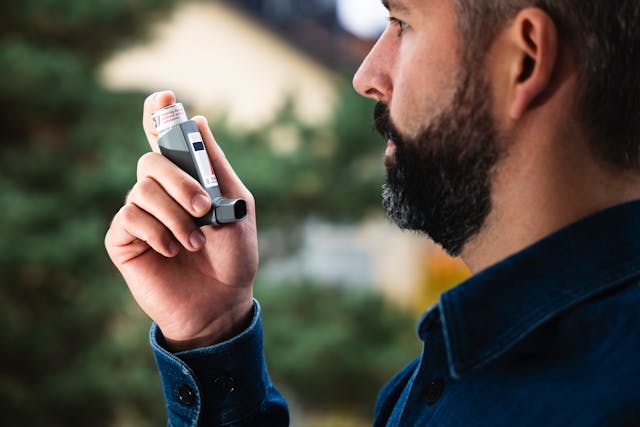
What Is the Connection Between Allergies and Asthma?
Allergic asthma is a type of asthma triggered by allergens — substances that cause allergic reactions. When someone with allergic asthma is exposed to an allergen like pollen or mold, their immune system reacts, causing inflammation in the airways. This inflammation leads to asthma symptoms such as:
- Shortness of breath
- Chest tightness
- Wheezing
- Persistent coughing
The connection between the two conditions lies in the immune system’s overreaction. For patients with both allergies and asthma, managing one often helps manage the other.
Common Allergy Triggers That Can Affect Asthma
Identifying and avoiding triggers is key to controlling allergic asthma. In NYC, environmental and indoor allergens are everywhere. Some of the most common include:
- Pollen: Tree, grass, and weed pollens peak during spring and fall.
- Dust Mites: Common in apartment buildings and older homes.
- Mold: Grows in damp areas like bathrooms, basements, and subways.
- Pet Dander: Even if you don’t own pets, shared spaces can harbor dander.
- Cockroach Droppings: A common trigger in densely populated cities.
Inhalation of these allergens can set off both allergy symptoms and an asthma attack, especially in individuals with allergic asthma.
Signs You May Have Allergic Asthma
If you’re already diagnosed with allergies or asthma, but you’re noticing cross-over symptoms, you may have allergic asthma. Watch for:
- Worsening of asthma symptoms during allergy season
- Asthma attacks after pet exposure
- Need for frequent rescue inhaler use in dusty or moldy environments
- Asthma triggered by pollen, smoke, or perfume
A consultation with a board-certified allergist can confirm the diagnosis and help you develop a targeted treatment plan.
Testing for Allergies and Asthma
To determine if your asthma is allergy-related, an allergist may recommend:
- Skin Prick Testing: Identifies sensitivities to common allergens.
- Blood Testing (IgE): Measures allergy-related antibodies.
- Spirometry: Assesses lung function and airflow restriction.
A combination of tests can provide a complete picture of what’s causing your symptoms — and how to treat them.
Treatment Options That Target Both Conditions
Managing allergies and asthma together often results in better outcomes. Effective treatments may include:
- Inhalers: Daily corticosteroids and rescue bronchodilators help manage asthma symptoms.
- Antihistamines: Reduce allergic reactions and nasal symptoms.
- Allergy Immunotherapy: Allergy shots or sublingual tablets retrain the immune system to reduce sensitivity.
- Environmental Control: Air purifiers, allergen-proof bedding, and mold remediation can reduce exposure.
Many patients with allergic asthma see long-term improvements when both allergies and asthma are addressed as part of the same treatment strategy.
Why Seeing an Allergist Matters
While general practitioners can treat asthma, an allergist has the specialized knowledge to identify allergy-asthma overlaps. By creating a personalized care plan, they can reduce your reliance on emergency medications and help you lead a more comfortable, symptom-free life — even during peak allergy season in NYC.
Get Expert Help for Allergies and Asthma in NYC
If you’re struggling with allergy-induced asthma or aren’t sure what’s triggering your symptoms, expert help is available. Schedule a consultation with Dr. Boyan Hadjiev to receive comprehensive allergy and asthma care designed around your needs.
Allergy, Asthma and Sinusitis P.C
Boyan Hadjiev, MD
30 East 40th Street
Suite 1200
New York, NY 10016
212-319-5282
How to Manage Food Allergies Safely and Effectively
How to manage food allergies safely and effectively is one of the most important health goals for millions of individuals living with dietary restrictions. In a bustling food hub like New York City, where exposure to hidden allergens can happen in restaurants, bakeries, or even grocery stores, it’s crucial to have a solid allergy management plan to stay safe and healthy.
Whether you’ve been recently diagnosed or have lived with food allergies for years, proper education and a proactive approach can significantly reduce your risk of accidental exposure and improve your quality of life.
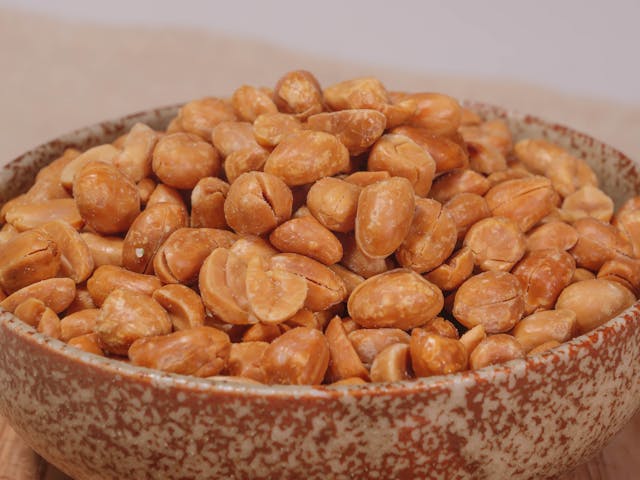
What Are Food Allergies?
Food allergies occur when the immune system mistakenly identifies a certain food protein as harmful. This reaction can range from mild irritation to severe, life-threatening anaphylaxis. Unlike food intolerances, food allergies involve the immune system and can be triggered by even trace amounts of the allergen.
Common food allergens include:
- Peanuts
- Tree nuts (e.g., almonds, walnuts, cashews)
- Milk
- Eggs
- Wheat
- Soy
- Shellfish and fish
- Sesame (now considered a major allergen under U.S. law)
Signs and Symptoms to Watch For
Recognizing symptoms of food allergies is critical to prompt treatment. Reactions typically occur within minutes to two hours after eating the allergen. Signs may include:
- Hives, itching, or eczema
- Swelling of the lips, face, tongue, or throat
- Wheezing, nasal congestion, or trouble breathing
- Stomach pain, vomiting, or diarrhea
- Dizziness or fainting
- Anaphylaxis – a potentially life-threatening reaction that requires immediate medical attention
Accurate Diagnosis Through Allergy Testing
If you suspect a food allergy, an evaluation by a board-certified allergist is essential. At your consultation, the allergist may use:
- Skin prick testing: Identifies immediate allergic reactions to specific foods
- Blood testing (specific IgE): Measures allergy-related antibodies in your bloodstream
- Oral food challenge: Performed under medical supervision to confirm or rule out an allergy
Getting the right diagnosis can help avoid unnecessary dietary restrictions and prevent serious allergic reactions.
Effective Strategies for Living with Food Allergies
Managing food allergies requires constant vigilance, especially in a fast-paced city like NYC. Here are key strategies:
- Read Labels Thoroughly: Always check ingredient lists for allergens and look for “may contain” or “processed in a facility” warnings.
- Inform Others: Notify restaurant staff, school administrators, coworkers, and friends about your allergies.
- Carry Emergency Medication: Always have an epinephrine auto-injector (like EpiPen) and know how to use it.
- Use Allergy Cards: Especially useful in restaurants — these clearly list your allergens and can be handed to chefs or servers.
- Wear a Medical Alert Bracelet: This helps first responders quickly identify your condition in case of an emergency.
Special Considerations for Children
For children with food allergies, additional precautions are needed. These include:
- Allergy action plans shared with schools and caregivers
- Education for teachers and peers on avoiding cross-contamination
- Safe snack lists and allergy-friendly lunch preparation
Working closely with a pediatric allergist can help ensure that kids stay healthy and included in social activities without compromising safety.
Looking Toward the Future: Can Food Allergies Be Treated?
While there’s no universal cure for food allergies, advances in treatment — such as oral immunotherapy (OIT) — are offering hope. Under the guidance of an allergist, patients are exposed to tiny, gradually increasing amounts of the allergen to build tolerance over time.
Though not suitable for everyone, these cutting-edge treatments may be a game-changer for some individuals with severe or life-threatening allergies.
Find Expert Help for Food Allergy Management in NYC
If you’re ready to take control of your food allergies, expert care is essential. Schedule a consultation with Dr. Boyan Hadjiev at Allergy, Asthma and Sinusitis P.C., where you’ll receive a customized management plan based on your specific needs and lifestyle.
Allergy, Asthma and Sinusitis P.C
Boyan Hadjiev, MD
30 East 40th Street
Suite 1200
New York, NY 10016
212-319-5282
Live confidently with food allergies—get the support you need from one of NYC’s top allergists.
Seasonal Allergies in NYC: Triggers, Symptoms, and Treatment
Seasonal allergies in NYC can be especially troublesome due to the city’s dense urban landscape, fluctuating pollen levels, and year-round exposure to environmental irritants. As spring and fall bring changes in temperature and blooming vegetation, thousands of New Yorkers experience sneezing, itchy eyes, congestion, and fatigue — all classic signs of allergic rhinitis.
Understanding the common triggers, symptoms, and treatment options is the first step toward managing seasonal allergies and reclaiming comfort in your daily life.

Common Seasonal Allergy Triggers in New York City
New York’s seasons bring a predictable pattern of allergens, but the severity and timing can vary depending on weather and air quality. Common triggers include:
- Tree Pollen (Spring): Maple, oak, birch, and elm trees release high levels of pollen between March and May.
- Grass Pollen (Late Spring to Summer): Grasses such as Timothy, Bermuda, and Kentucky bluegrass peak from May to July.
- Weed Pollen (Late Summer to Fall): Ragweed is the most notorious fall allergen, beginning in August and continuing through October.
- Mold Spores: Humid conditions, particularly in subways and parks, foster mold growth year-round, but it peaks in the fall.
- Air Pollution: Smog, exhaust, and particulate matter can worsen allergy symptoms or mimic them, especially in warm months.
Typical Symptoms of Seasonal Allergies
Seasonal allergy symptoms can range from mild to severe and often mimic the common cold. Common signs include:
- Sneezing and nasal congestion
- Runny nose or postnasal drip
- Itchy, watery, or red eyes
- Coughing or wheezing
- Fatigue or brain fog due to disrupted sleep
- Itchy throat or ears
These symptoms can significantly impact productivity, mood, and quality of life — especially when left untreated.
Diagnosing Seasonal Allergies
If you’re unsure whether your symptoms are allergy-related, a visit to a board-certified allergist is the best next step. A personalized evaluation may include:
- Skin Prick Testing: To identify which pollens or molds trigger your symptoms.
- IgE Blood Testing: Useful when skin testing isn’t an option, such as in patients with severe eczema or those on antihistamines.
Understanding exactly what you’re allergic to allows for targeted treatment — rather than guesswork with over-the-counter medications.
Treatment Options for Seasonal Allergies
Modern allergy care goes far beyond antihistamines. Depending on your severity, your allergist may recommend:
- Daily Medications: Includes oral antihistamines, nasal corticosteroids, and decongestants for short-term relief.
- Allergy Eye Drops: Target red, itchy, or watery eyes caused by pollen exposure.
- Allergen Avoidance Strategies: Includes closing windows, using air purifiers, and showering after outdoor exposure.
- Immunotherapy: Allergy shots or sublingual tablets gradually retrain your immune system to reduce long-term sensitivity.
With expert care, many patients experience dramatic symptom relief and even outgrow their allergies over time.
Managing Seasonal Allergies in the City
Living in New York means navigating allergens in parks, transit systems, office buildings, and apartments. Smart habits can minimize flare-ups:
- Track daily pollen counts using online tools and apps.
- Wear sunglasses outdoors to block pollen from your eyes.
- Change clothes and wash hands after being outside.
- Use HEPA filters in your bedroom and avoid carpets.
- Schedule regular cleanings for HVAC systems and window units.
Your allergist can help you develop a customized allergy management plan based on your lifestyle and environmental exposures.
Find Expert Help for Seasonal Allergies in NYC
If you’re tired of struggling with seasonal allergies in NYC, expert diagnosis and care are just a phone call away. Schedule a consultation with Dr. Boyan Hadjiev, also known as “Dr. Sneeze,” and take the first step toward breathing easier year-round.
Allergy, Asthma and Sinusitis P.C
Boyan Hadjiev, MD
30 East 40th Street
Suite 1200
New York, NY 10016
212-319-5282
Top Allergy Testing Options in NYC: What Patients Need to Know
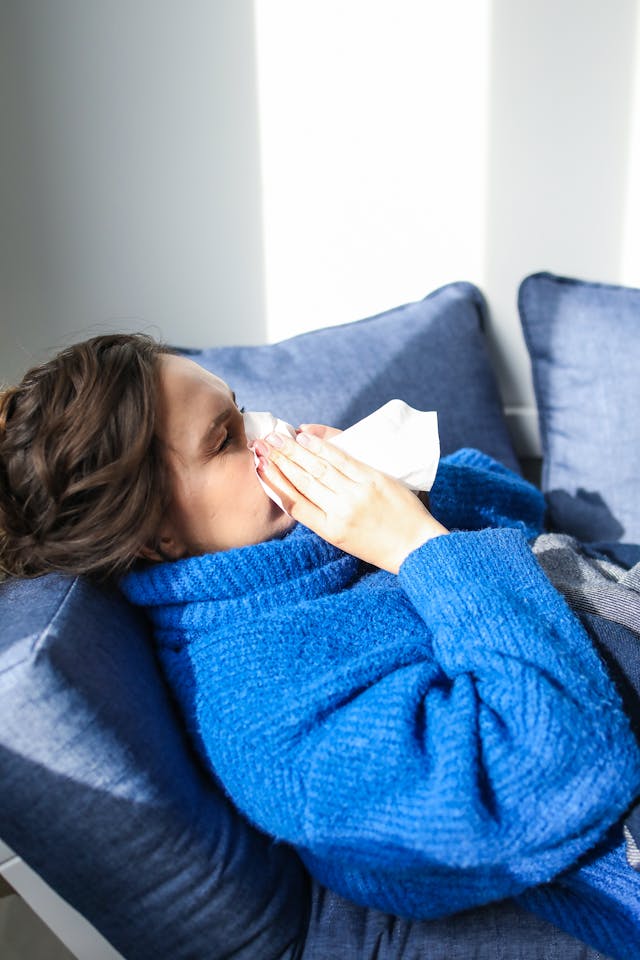 Top allergy testing options in NYC can make a significant difference for individuals suffering from chronic sneezing, congestion, rashes, or unexplained asthma. In a city filled with potential allergens — from seasonal pollen and mold to pet dander and food triggers — accurate allergy testing is the first step toward lasting relief.
Top allergy testing options in NYC can make a significant difference for individuals suffering from chronic sneezing, congestion, rashes, or unexplained asthma. In a city filled with potential allergens — from seasonal pollen and mold to pet dander and food triggers — accurate allergy testing is the first step toward lasting relief.
Dr. Boyan Hadjiev, also known as “Dr. Sneeze,” offers advanced diagnostic tools tailored to the diverse and often complex needs of New York City residents. Whether you’re struggling with indoor or outdoor allergies, understanding your testing options is key to creating an effective treatment plan.
Why Allergy Testing Matters
Allergy symptoms can be vague, overlap with other conditions, and vary in severity — which makes diagnosis without testing difficult and often inaccurate. Testing helps determine:
- Exactly which allergens are triggering your symptoms
- How severe your reactions are
- Whether immunotherapy (allergy shots or drops) may be beneficial
- What lifestyle changes and medications will be most effective
With precise test results, your allergist can craft a personalized plan to reduce or eliminate symptoms — rather than just masking them.
Types of Allergy Tests Offered in NYC
1. Skin Prick Testing (SPT)
Skin prick testing is the most commonly used method to detect environmental and food allergies.
- How it works: A small amount of allergen is placed on your skin (usually the forearm), followed by a gentle prick.
- Time to results: Reactions are visible in 15–20 minutes as a small red bump or wheal.
- Tests for: Pollen, mold, pet dander, dust mites, and common food allergens.
2. Intradermal Skin Testing
Used when skin prick testing is inconclusive or when a more sensitive approach is needed.
- How it works: A small amount of allergen is injected just under the skin.
- Tests for: Environmental allergens, insect venom, and sometimes drug allergies.
3. Specific IgE Blood Testing
Blood testing is ideal for patients who can’t stop taking antihistamines or those with severe eczema.
- How it works: A blood sample is taken to measure immune system responses to various allergens.
- Time to results: Usually within a few days.
- Tests for: Food allergens, pet dander, mold, and airborne irritants.
4. Component-Resolved Diagnostics (CRD)
A cutting-edge form of blood testing that provides detailed insight into food and environmental allergies.
- Why it’s advanced: It breaks down allergens into specific proteins, helping to distinguish between mild sensitivity and high-risk reactions.
- Best for: Patients with suspected peanut, tree nut, or shellfish allergies, or those considering immunotherapy.
5. Patch Testing
Patch testing is used for identifying delayed allergic reactions — often seen in skin rashes or eczema.
- How it works: Patches containing potential allergens are applied to the skin for 48 hours.
- Tests for: Contact allergens like nickel, fragrances, preservatives, and latex.
Which Test Is Right for You?
Choosing the right test depends on:
- Your symptoms and suspected triggers
- Your age and overall health
- Whether you’re currently taking allergy medications
- Your medical history and past allergy reactions
In some cases, your allergist may recommend a combination of tests to fully understand your condition.
What to Expect During an Allergy Test
• Most tests are performed in-office and take less than an hour.
• You may be asked to stop antihistamines several days beforehand.
• Results are often immediate (for skin testing) or available within a week (for blood tests).
• A treatment plan will follow based on your results, including possible dietary or environmental changes, medications, or immunotherapy.
Schedule Advanced Allergy Testing in NYC
If you’re dealing with chronic allergy symptoms, stop guessing and start testing. For the top allergy testing options in NYC, schedule your evaluation with Dr. Boyan Hadjiev today at:
Allergy, Asthma and Sinusitis P.C
Boyan Hadjiev, MD
30 East 40th Street
Suite 1200
New York, NY 10016
212-319-5282
Accurate testing is the foundation of effective allergy relief. Find out what’s triggering your symptoms and take control of your health with the help of NYC’s trusted allergy specialist.
The Role of Immunotherapy in Treating Allergies and Asthma
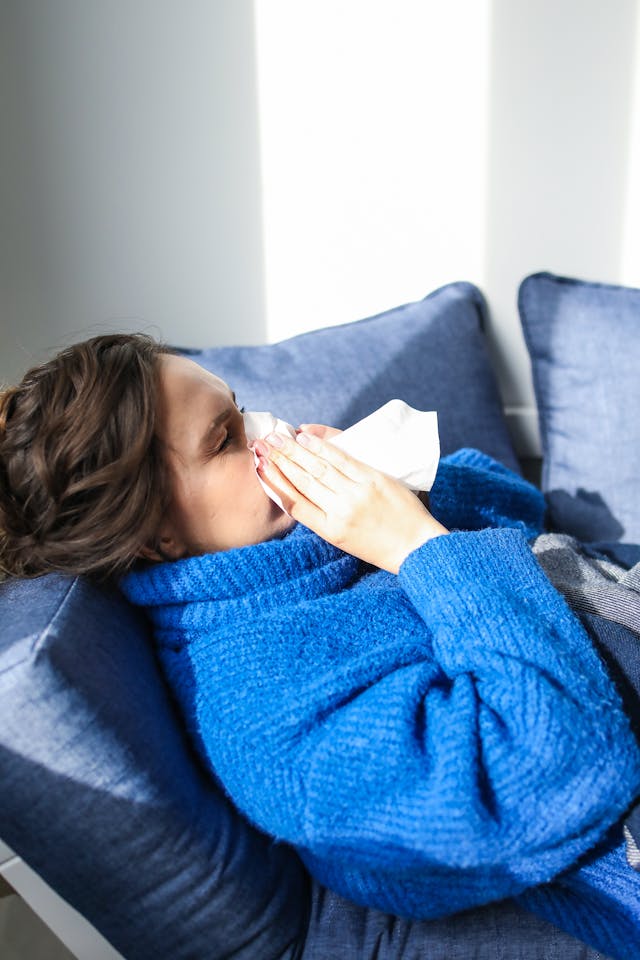 Understanding the role of immunotherapy in treating allergies and asthma is key to long-term relief — especially for those who suffer from persistent symptoms that don’t fully respond to medications. In New York City, where environmental allergens and air pollutants are part of everyday life, immunotherapy offers a highly effective solution for managing chronic allergic conditions and allergic asthma.
Understanding the role of immunotherapy in treating allergies and asthma is key to long-term relief — especially for those who suffer from persistent symptoms that don’t fully respond to medications. In New York City, where environmental allergens and air pollutants are part of everyday life, immunotherapy offers a highly effective solution for managing chronic allergic conditions and allergic asthma.
This guide explores how immunotherapy works, who it benefits most, and what to expect during treatment.
What Is Immunotherapy?
Immunotherapy is a long-term treatment designed to reduce the body’s sensitivity to allergens. By gradually introducing small, controlled doses of the allergen over time, the immune system becomes less reactive — leading to fewer symptoms and better control of allergic conditions.
There are two main types of immunotherapy:
- Subcutaneous Immunotherapy (SCIT): Commonly known as allergy shots, this method involves injecting small amounts of allergens under the skin, typically in the arm.
- Sublingual Immunotherapy (SLIT): Allergy drops or tablets are placed under the tongue and absorbed into the bloodstream.
How Immunotherapy Helps Allergies and Asthma
Allergies and asthma are often closely linked. Allergens like pollen, dust mites, mold, and pet dander can trigger asthma symptoms in people with allergic asthma. Immunotherapy treats the root cause of allergic reactions, which in turn helps manage asthma symptoms more effectively.
Here’s how it works:
- Reduces allergic inflammation: Immunotherapy retrains your immune system to become less reactive to allergens.
- Decreases medication dependence: Over time, many patients need fewer antihistamines, nasal sprays, or asthma inhalers.
- Improves long-term control: Unlike medications that only relieve symptoms, immunotherapy modifies the disease itself.
- Lowers risk of new allergies: Starting immunotherapy early may help prevent the development of additional allergies.
Who Is a Good Candidate for Immunotherapy?
Immunotherapy may be recommended if you:
- Have moderate to severe allergies that interfere with daily life
- Don’t get sufficient relief from medications alone
- Want to reduce long-term dependence on allergy and asthma medications
- Have allergic asthma triggered by specific allergens
- Can commit to a consistent treatment schedule
Both adults and children (usually age 5 and older) can benefit from immunotherapy when prescribed and monitored by a specialist.
What to Expect During Treatment
Subcutaneous Immunotherapy (Allergy Shots)
- Build-Up Phase: Injections are given once or twice a week for 3–6 months, with increasing doses of allergens.
- Maintenance Phase: Once the effective dose is reached, injections are spaced out to every 2–4 weeks and continue for 3–5 years.
- Monitoring: Patients remain in the clinic for about 30 minutes after each shot to monitor for reactions.
Sublingual Immunotherapy (Allergy Drops/Tablets)
- Daily Dosing: You take allergy drops or tablets at home under the tongue daily.
- Convenience: Ideal for those who prefer a non-invasive method or can’t commit to frequent clinic visits.
- Effectiveness: SLIT is FDA-approved for certain allergens, including grass, ragweed, and dust mites.
Are There Side Effects?
Immunotherapy is generally safe when administered under medical supervision. Mild side effects may include:
- Redness or swelling at the injection site
- Itchy mouth or throat (for SLIT)
Severe reactions (like anaphylaxis) are rare and typically occur during the build-up phase. That’s why it’s important to receive injections in a medical setting with observation afterward.
Long-Term Benefits of Immunotherapy
The most rewarding aspect of immunotherapy is its potential to provide long-term remission from allergies and improved asthma control. Many patients experience:
- Lasting relief even after treatment ends
- Fewer or no asthma attacks
- Improved sleep, focus, and quality of life
- Reduced emergency room visits or steroid use
Explore Your Immunotherapy Options in NYC
If you’re dealing with persistent allergies or allergic asthma, immunotherapy might be the long-term solution you’ve been looking for. To find out if you’re a candidate, schedule a consultation with Dr. Boyan Hadjiev at:
Allergy, Asthma and Sinusitis P.C
Boyan Hadjiev, MD
30 East 40th Street
Suite 1200
New York, NY 10016
212-319-5282
Discover how the role of immunotherapy in treating allergies and asthma can help you breathe easier, live better, and reduce your need for daily medications.
How to Manage Food Allergies Safely and Effectively
Knowing how to manage food allergies safely and effectively is essential for protecting your health and maintaining peace of mind — whether you’re eating at home, dining out, or traveling. Food allergies affect millions of people in the U.S., and reactions can range from mild discomfort to life-threatening anaphylaxis.
For New Yorkers navigating busy schedules and constant exposure to food in restaurants, office kitchens, and public spaces, awareness and preparation are key. Here’s how to take control of your food allergies with smart strategies, expert care, and everyday precautions.

What Are Food Allergies?
Food allergies occur when the immune system mistakenly identifies a food protein as a threat and launches a defensive response. Unlike food intolerances, which involve digestion, food allergies involve the immune system and can cause severe symptoms even from tiny exposures.
Common Allergenic Foods
The majority of food allergies are caused by these top allergens:
- Peanuts
- Tree nuts (e.g., walnuts, almonds, cashews)
- Milk
- Eggs
- Soy
- Wheat
- Fish
- Shellfish
Symptoms to Watch For
Food allergy symptoms can appear within minutes or up to two hours after consuming the allergen. Symptoms may include:
- Hives, itching, or eczema
- Swelling of the lips, face, tongue, or throat
- Difficulty breathing, wheezing, or nasal congestion
- Abdominal pain, nausea, vomiting, or diarrhea
- Dizziness, lightheadedness, or fainting
- Anaphylaxis – a severe, potentially fatal allergic reaction
If you suspect an allergy, even with mild symptoms, consult an allergist immediately for testing and diagnosis.
Getting an Accurate Diagnosis
Proper diagnosis is critical to managing food allergies safely and effectively. This may include:
- Skin prick testing: Identifies immediate allergic reactions to specific food proteins.
- Blood testing: Measures the presence of IgE antibodies linked to food allergens.
- Oral food challenge: Performed under medical supervision, this test introduces small amounts of the suspected allergen to confirm a diagnosis.
Creating a Food Allergy Management Plan
Once a food allergy is confirmed, developing a personalized plan is essential. This plan should include:
- Strict avoidance: The only proven method to prevent reactions is to avoid the allergen entirely.
- Label reading: Always check ingredient labels carefully. Learn to recognize alternate names for allergens.
- Emergency response: Carry prescribed medications (such as an epinephrine auto-injector) and know how and when to use them.
- Allergy action plan: Share this plan with schools, employers, and caregivers. Include steps to take in case of accidental exposure.
Dining Out With Confidence
Dining out can be a source of anxiety for people with food allergies, but it doesn’t have to be. Use these precautions to stay safe:
- Choose restaurants that are allergy-aware and willing to accommodate dietary needs.
- Notify the host, server, and chef about your allergies every time — even if you’ve eaten there before.
- Ask detailed questions about food prep, shared equipment, sauces, and garnishes.
- Carry a food allergy dining card to clearly communicate your needs, especially when traveling.
Living With Food Allergies: Daily Tips
Managing food allergies safely and effectively requires ongoing awareness. Incorporate these habits into your routine:
- Keep epinephrine accessible at all times — and make sure family members and coworkers know how to use it.
- Educate your child’s school or caregivers about safe foods and symptoms of a reaction.
- Stay updated on food recalls and ingredient changes by following allergy-focused organizations and apps.
- Join a local or online support group for tips, recipes, and shared experiences.
Get Expert Help Managing Food Allergies
If you or your child has food allergies, a board-certified allergist can help develop a safe, effective management plan. Schedule a consultation with Dr. Boyan Hadjiev for comprehensive allergy testing and ongoing care at:
Allergy, Asthma and Sinusitis P.C
Boyan Hadjiev, MD
30 East 40th Street
Suite 1200
New York, NY 10016
212-319-5282
Take control of your health and protect yourself from serious reactions by learning how to manage food allergies safely and effectively. Professional support makes all the difference.
Seasonal Allergies vs. Perennial Allergies: Key Differences
Understanding the distinction between seasonal allergies vs. perennial allergies is crucial for effective treatment and long-term relief — especially in a place like New York City, where allergens can be constant and varied. Not all allergies are created equal. Some strike only during specific times of the year, while others seem to linger year-round with no relief in sight.
If you’re constantly sneezing, congested, or battling itchy eyes, this guide will help you identify whether your symptoms are seasonal or perennial — and what steps you can take to manage them effectively.

What Are Seasonal Allergies?
Seasonal allergies, also known as hay fever or seasonal allergic rhinitis, are triggered by allergens that appear at certain times of the year. These allergens are typically airborne pollens from:
- Trees: Common in spring (e.g., oak, birch, maple)
- Grasses: Peak during late spring and early summer
- Weeds: Especially ragweed, which dominates late summer into fall
Typical Symptoms of Seasonal Allergies:
- Sneezing
- Runny or stuffy nose
- Itchy, watery eyes
- Postnasal drip
- Fatigue due to disrupted sleep
These symptoms usually intensify during high pollen count days and may last weeks or months, depending on the season and your specific triggers.
What Are Perennial Allergies?
Perennial allergies occur year-round and are caused by continuous exposure to indoor allergens. These may include:
- Dust mites: Found in bedding, carpets, and upholstered furniture
- Pet dander: Proteins in animal skin flakes, saliva, and urine
- Mold spores: Often present in damp areas like bathrooms and basements
- Cockroach droppings: A common allergen in many urban environments
Typical Symptoms of Perennial Allergies:
- Chronic nasal congestion
- Frequent sinus pressure or infections
- Persistent coughing or throat clearing
- Itchy eyes and throat
- Ongoing fatigue or irritability
Because the exposure is constant, symptoms tend to be milder but more persistent than those from seasonal allergies.
Key Differences at a Glance
| Feature | Seasonal Allergies | Perennial Allergies |
|---|---|---|
| Timing | Specific seasons (spring, summer, fall) | Year-round |
| Common Triggers | Pollen (trees, grasses, weeds) | Dust mites, pet dander, mold |
| Onset | Sudden during allergy season | Chronic and ongoing |
| Location | Mostly outdoors | Mostly indoors |
| Relief Strategies | Pollen avoidance, antihistamines, nasal sprays | HEPA filters, frequent cleaning, allergen-proof bedding |
Diagnosis and Testing
Accurate allergy testing can confirm whether your symptoms are triggered by seasonal allergens, perennial allergens, or both. Tests may include:
- Skin prick testing: Identifies immediate allergic reactions to various substances
- Blood testing: Measures allergen-specific IgE antibodies in the blood
A personalized evaluation by an allergist ensures you receive the right treatment for your specific triggers.
Managing Seasonal and Perennial Allergies
Both types of allergies can be managed with a combination of lifestyle changes and medical treatment:
- Antihistamines and nasal sprays: Control sneezing, itching, and congestion
- Decongestants: Reduce swelling in nasal passages
- Immunotherapy (allergy shots): Offers long-term relief by desensitizing the immune system
- Environmental control: Use HEPA filters, control humidity, and clean regularly to reduce indoor allergens
Still Not Sure Which Allergy You Have?
It’s common for people to experience both seasonal and perennial allergies — especially in a dense, dynamic city like NYC. The best way to find out what’s causing your symptoms is through professional allergy testing and consultation.
Seasonal Allergies vs. Perennial Allergies: Schedule Your Allergy Evaluation in NYC
Whether your allergies are seasonal, perennial, or both, expert care can make all the difference. For personalized diagnosis and relief strategies, schedule your consultation with Dr. Boyan Hadjiev at:
Allergy, Asthma and Sinusitis P.C
Boyan Hadjiev, MD
30 East 40th Street
Suite 1200
New York, NY 10016
212-319-5282
Don’t let allergies rule your year — discover your triggers and find relief with the help of NYC’s trusted allergy specialist.
Immune System Disorders: Recognizing the Signs
When something goes wrong, and the immune system becomes underactive or overactive, it can lead to immune system disorders that may significantly affect your health. Your immune system is your body’s defense mechanism — a complex network of cells, tissues, and organs that protect you from infections and diseases. When it functions properly, it fights off harmful invaders like bacteria, viruses, and allergens.
Understanding the early warning signs of immune dysfunction is crucial for timely diagnosis and treatment. In this guide, we’ll explore the different types of immune system disorders, common symptoms to watch for, and when to seek help from a specialist.

Types of Immune System Disorders
Immune system disorders fall into several categories based on how the immune system is affected:
- Primary Immunodeficiency Disorders: These are inherited conditions where part of the immune system is missing or doesn’t function properly. They are often diagnosed in childhood.
- Secondary (Acquired) Immunodeficiencies: These develop due to external factors such as infections (like HIV), chemotherapy, or chronic illnesses.
- Autoimmune Diseases: In these conditions, the immune system mistakenly attacks the body’s own healthy tissues. Examples include lupus, rheumatoid arthritis, and multiple sclerosis.
- Allergic Conditions: An overreaction of the immune system to harmless substances, such as pollen, dust, or certain foods, resulting in allergies or asthma.
Early Signs of an Immune System Disorder
Recognizing the early symptoms of immune dysfunction can help you get treatment before complications arise. Common warning signs include:
- Frequent Infections: More than four ear infections a year, repeated pneumonia, or chronic sinus infections may indicate an underlying immune issue.
- Persistent Fatigue: Feeling constantly tired or drained can be a sign that your immune system is under stress or not functioning properly.
- Delayed Growth or Development (in children): Children with immune issues may fail to grow or gain weight as expected.
- Digestive Problems: Chronic diarrhea, cramping, or loss of appetite may suggest inflammation caused by immune dysfunction.
- Inflamed or Painful Joints: Joint pain, stiffness, or swelling could be related to autoimmune activity.
- Skin Rashes or Hives: Persistent or unexplained skin issues may signal an overactive immune response.
How Are Immune Disorders Diagnosed?
If you or your child are experiencing ongoing symptoms, a specialist may perform the following evaluations:
- Medical History & Physical Exam: Your physician will evaluate your symptoms, health history, and any recurring infections.
- Blood Tests: These tests measure immune cell counts, antibody levels, and signs of inflammation or autoimmune activity.
- Allergy Testing: Identifying environmental or food allergies that could be triggering immune responses.
- Imaging & Biopsies: In certain cases, imaging studies or tissue biopsies may be needed to evaluate organ involvement or inflammation.
Treatment Options for Immune System Disorders
Treatment depends on the type and severity of the disorder. Common approaches include:
- Immunoglobulin Therapy: Replaces missing antibodies in patients with immunodeficiencies.
- Anti-inflammatory or Immunosuppressant Medications: Used for autoimmune diseases to calm the immune response.
- Targeted Biologic Therapies: Advanced treatments that block specific immune system signals involved in disease processes.
- Allergy Management: Including antihistamines, corticosteroids, or allergy immunotherapy to reduce overactive immune responses.
- Lifestyle Adjustments: Diet, stress management, sleep, and infection prevention are all essential in managing immune disorders.
When to See a Specialist
If you experience frequent infections, unexplained fatigue, or symptoms that don’t improve with routine care, it’s time to consult a specialist. Immune system disorders are manageable — especially when diagnosed early.
Contact an Allergy and Immunology Specialist in NYC
If you’re concerned about a possible immune system disorder, schedule a consultation with Dr. Boyan Hadjiev at:
Allergy, Asthma and Sinusitis P.C
Boyan Hadjiev, MD
30 East 40th Street
Suite 1200
New York, NY 10016
212-319-5282
Early detection and personalized treatment can dramatically improve quality of life for those living with immune system disorders. Take the first step toward answers and relief today.
What to Expect During an Allergy Consultation
An allergy consultation is the first step toward identifying allergic triggers and developing a personalized treatment plan for long-term relief. If you’re struggling with persistent sneezing, nasal congestion, skin irritation, or unexplained coughing, it’s time to consult an allergy specialist. Whether you’re dealing with seasonal allergies, food sensitivities, asthma, or chronic sinus issues, understanding what to expect during your visit can help you feel more prepared and at ease.
Here’s a detailed breakdown of what typically happens during an allergy consultation — especially at a specialized clinic like Allergy, Asthma and Sinusitis P.C. in New York City.
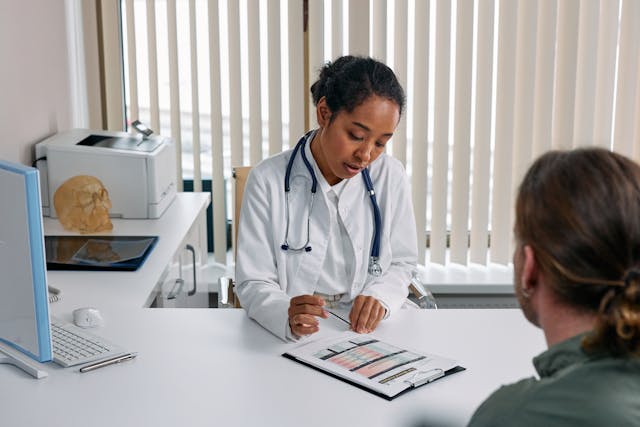
Step 1: A Comprehensive Medical History Review
Your allergist will begin by gathering detailed information about your symptoms and health history. Be prepared to answer questions like:
- When did your symptoms start?
- Do they occur seasonally or year-round?
- Do certain environments, foods, or situations trigger symptoms?
- Are there any other medical conditions or allergies in your family?
- Have you tried any medications, and how well did they work?
The more specific you can be, the easier it is to identify patterns that suggest underlying allergy-related conditions.
Step 2: Physical Examination
A physical exam helps your allergist assess any visible signs of allergic reaction or inflammation. This might include:
- Checking your nasal passages for swelling or blockages
- Listening to your lungs for wheezing or breathing irregularities
- Examining your skin for rashes, hives, or eczema
- Evaluating your eyes for redness or puffiness
These observations guide your allergist in selecting the most appropriate diagnostic tests.
Step 3: Allergy Testing (If Needed)
If your symptoms suggest an allergic response, your allergist may recommend one or more of the following tests:
- Skin Prick Testing: Small amounts of allergens are applied to your skin to check for reactions.
- Intradermal Testing: Used when skin prick testing is inconclusive, involving slightly deeper injections under the skin.
- Blood Tests (IgE Testing): Measures your immune system’s response to specific allergens.
- Patch Testing: Used for contact dermatitis, where allergens are applied to patches placed on your skin for 48 hours.
Your allergist will determine which test is appropriate based on your symptoms, medical history, and current medications.
Step 4: Diagnosis and Explanation
Once test results are available — often the same day for skin tests or within a few days for blood tests — your allergist will explain:
- Which allergens you’re reacting to
- The severity of each reaction
- How your symptoms relate to the test findings
This explanation helps connect the dots between your daily experiences and the allergens affecting your health.
Step 5: Personalized Treatment Plan
Your allergist will create a treatment strategy tailored to your lifestyle and the type/severity of your allergies. This may include:
- Medications: Antihistamines, nasal sprays, inhalers, or epinephrine (for severe reactions)
- Allergen Avoidance Tips: Practical ways to reduce exposure in your home, workplace, and daily routine
- Allergy Immunotherapy: Allergy shots or drops that help reduce your immune response over time
- Asthma Management: If asthma is involved, your treatment will include proper inhaler use and monitoring plans
Education is a major component of your consultation. Your allergist will make sure you understand how to manage symptoms and when to seek emergency care.
What to Bring to Your Appointment
To make the most of your allergy consultation, come prepared with:
- A list of your symptoms and how long they’ve lasted
- Any medications you’re currently taking (including over-the-counter)
- Details about your living and working environment
- Records of past allergic reactions or previous test results
Wearing short sleeves can also make skin testing more convenient.
Next Steps After the Consultation
After your initial visit, your allergist may schedule follow-up appointments to monitor your progress, adjust treatment, or begin immunotherapy. With proper diagnosis and management, you’ll be on your way to living more comfortably — and symptom-free.
Schedule Your Allergy Consultation in NYC
If you’re ready to get answers and take control of your health, schedule a consultation with Dr. Boyan Hadjiev at:
Allergy, Asthma and Sinusitis P.C
Boyan Hadjiev, MD
30 East 40th Street
Suite 1200
New York, NY 10016
212-319-5282
Don’t let allergies disrupt your daily life. A professional allergy evaluation can provide the clarity and relief you’ve been looking for.
Exploring Advanced Allergy Testing Methods
In New York City, where allergen exposure is constant and varied, understanding advanced allergy testing options is key. Allergies can impact every aspect of your life — from what you eat and where you go, to how well you sleep. If you’ve been dealing with persistent symptoms like sneezing, congestion, rashes, or even digestive issues, pinpointing the exact cause is the first step toward effective relief. Fortunately, modern allergy testing methods have come a long way, offering highly accurate insights with less discomfort and faster results. Here’s a comprehensive look at today’s most effective testing techniques and what you can expect during the process.

Why Allergy Testing Is Important
Accurate allergy testing identifies the substances your body is reacting to — whether they’re environmental, food-related, or chemical. Once you know your specific triggers, your allergist can develop a personalized treatment plan, which may include medication, avoidance strategies, or immunotherapy.
Without testing, you’re left guessing — and often living with symptoms longer than necessary.
Advanced Allergy Testing Methods
Today’s allergy tests go far beyond the basics. Here are the most widely used and effective methods now offered in leading clinics:
1. Skin Prick Testing (SPT)
One of the most common and reliable methods for diagnosing allergies, skin prick testing involves placing tiny amounts of allergens just under the skin’s surface.
- What it tests: Common environmental allergens (dust mites, pollen, mold, pet dander) and some food allergens
- How it works: Allergens are applied to the skin with a small lancet. If you’re allergic, a small raised bump or redness will appear.
- Time to results: Within 15–20 minutes
2. Intradermal Testing
This method is more sensitive than the skin prick test and may be used when SPT results are negative but suspicion of an allergy remains high.
- What it tests: Primarily environmental allergens
- How it works: A small amount of allergen is injected just under the skin.
- Time to results: 15–20 minutes
3. Specific IgE Blood Testing
Also known as serum IgE testing, this blood test measures your immune system’s response to individual allergens by detecting allergen-specific antibodies.
- What it tests: Foods, environmental allergens, insect venom, medications
- How it works: A blood sample is taken and sent to a lab for analysis.
- Best for: Patients who cannot stop antihistamines or those with severe skin conditions
- Time to results: A few days to one week
4. Component-Resolved Diagnostics (CRD)
An advanced version of IgE blood testing, CRD analyzes specific proteins within allergens to determine the risk and severity of reactions.
- What it tests: Primarily food and insect venom allergies
- Why it’s advanced: Helps distinguish between a mild sensitivity and a potentially life-threatening reaction
- Best for: Complex food allergies and those considering immunotherapy
5. Patch Testing
This test identifies delayed allergic reactions that affect the skin — typically contact dermatitis.
- What it tests: Metals (like nickel), fragrances, latex, cosmetics, preservatives
- How it works: Allergens are applied to patches, which are worn on the back for 48 hours.
- Best for: Chronic rashes and eczema of unknown cause
Choosing the Right Testing Method
Your allergist will recommend a testing method based on:
- Your symptoms (respiratory, skin, digestive, etc.)
- Suspected triggers (food vs. environmental vs. chemical)
- Your health history, medications, and lifestyle
Sometimes, a combination of tests is needed to arrive at a precise diagnosis.
What to Expect During Testing
Allergy testing is safe, and while some methods cause mild itching or redness, most are well-tolerated. Preparation may include:
- Stopping antihistamines 3–7 days before testing (your provider will advise)
- Bringing a list of symptoms and suspected triggers
- Wearing comfortable clothing if skin testing is planned
When to Seek Advanced Allergy Testing
You should consider advanced allergy testing if you:
- Have persistent symptoms with no clear cause
- Experience frequent sinus infections, eczema, or unexplained asthma
- Suspect food allergies or intolerances
- Have tried over-the-counter medications without relief
Schedule Your Allergy Evaluation in NYC
If you’re struggling with undiagnosed allergy symptoms or want a more accurate diagnosis, advanced testing can help you finally get answers — and the relief you deserve. Schedule your evaluation with Dr. Boyan Hadjiev at:
Allergy, Asthma and Sinusitis P.C
Boyan Hadjiev, MD
30 East 40th Street
Suite 1200
New York, NY 10016
212-319-5282
Modern allergy testing is fast, precise, and a game-changer in helping you breathe, eat, and live more comfortably. Take the first step today.
How to Improve Indoor Air Quality for Allergy Relief
 How can you improve air quality for allergy relief? When living in a bustling city like New York, it’s easy to focus on outdoor pollution and forget that indoor air can be just as problematic — especially for those with allergies. In fact, indoor air quality can significantly impact allergy symptoms year-round.
How can you improve air quality for allergy relief? When living in a bustling city like New York, it’s easy to focus on outdoor pollution and forget that indoor air can be just as problematic — especially for those with allergies. In fact, indoor air quality can significantly impact allergy symptoms year-round.
Top allergists stress the importance of maintaining clean, allergen-free indoor environments to reduce allergic reactions and improve overall health. Here’s a complete guide to enhancing your indoor air quality for better allergy relief.
Why Indoor Air Quality Matters for Allergy Sufferers
Indoor air often contains allergens like dust mites, pet dander, mold spores, and volatile organic compounds (VOCs) from cleaning products or building materials. Poor air quality can lead to:
- Increased sneezing, coughing, and congestion
- Worsening of asthma symptoms
- Eye, nose, and throat irritation
- More frequent sinus infections
- Fatigue and poor sleep quality
For allergy sufferers, improving the air inside your home or workplace can dramatically reduce symptoms and improve overall well-being.
Effective Strategies to Improve Indoor Air Quality
Improving your indoor environment doesn’t have to be complicated. A few targeted strategies can make a major difference.
1. Use HEPA Filters
High-Efficiency Particulate Air (HEPA) filters trap tiny airborne particles, including allergens, and are essential for:
- Air purifiers
- Vacuum cleaners
- Heating and cooling systems (HVAC units)
Allergists recommend using HEPA-filtered devices throughout your home, especially in bedrooms and living areas.
2. Keep Humidity Levels in Check
Dust mites and mold thrive in humid environments. Maintain indoor humidity between 30% and 50% by:
- Using a dehumidifier during the warmer months
- Ventilating bathrooms and kitchens to reduce moisture buildup
- Fixing leaks promptly to prevent mold growth
3. Regular Cleaning Routines
Routine cleaning can drastically reduce the number of allergens in your home:
- Vacuum carpets and rugs at least once a week using a HEPA-filter vacuum.
- Wash bedding in hot water weekly to kill dust mites.
- Dust surfaces with a damp cloth to trap allergens instead of scattering them into the air.
4. Minimize Chemical Irritants
Household cleaning products, scented candles, and air fresheners can release VOCs that worsen allergies. To minimize chemical exposure:
- Choose fragrance-free and non-toxic cleaning supplies.
- Ventilate the space well when painting or remodeling.
- Consider using natural alternatives like vinegar and baking soda for cleaning.
5. Control Pet Dander
If you have pets, take extra steps to reduce allergens:
- Keep pets out of bedrooms and off upholstered furniture.
- Bathe and groom pets regularly.
- Use HEPA filters and clean frequently to remove pet hair and dander.
6. Improve Ventilation
 Good ventilation helps remove allergens and bring in fresh air. Tips include:
Good ventilation helps remove allergens and bring in fresh air. Tips include:
- Opening windows when outdoor air quality is good (check local AQI reports).
- Using exhaust fans in bathrooms and kitchens.
- Installing air exchange systems if you live in a tightly sealed building.
Additional Tips for Allergy Relief at Home
- Remove shoes before entering your home to avoid tracking in allergens.
- Replace curtains with washable blinds to minimize dust collection.
- Encourage a no-smoking policy indoors to eliminate tobacco smoke exposure.
With a few lifestyle changes and strategic improvements, you can dramatically enhance your indoor air quality and enjoy noticeable allergy relief.
Improve Indoor Air Quality for Allergy Relief: Contact NYC’s Allergy Specialist for Expert Advice
If you’re struggling with allergy symptoms despite your best efforts at home, professional help can make all the difference. Schedule an appointment with Dr. Boyan Hadjiev at:
Allergy, Asthma and Sinusitis P.C.
Boyan Hadjiev, MD
30 East 40th Street
Suite 1200
New York, NY 10016
212-319-5282
Take the first step toward a healthier, allergy-free environment with the support of NYC’s top allergy expert. Breathe easier — starting today!
Pediatric Allergy and Asthma: What Parents Need to Know
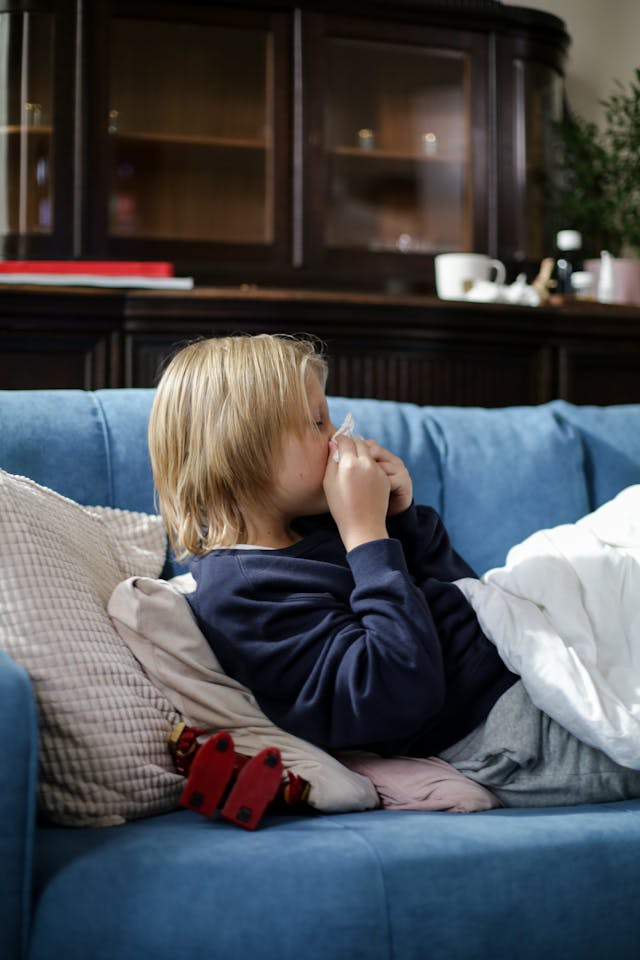 Understanding pediatric allergy and asthma management is essential for helping your child thrive, and early intervention can make a world of difference. Raising a child with allergies or asthma can be overwhelming, especially in a busy city like New York. From seasonal pollen to indoor allergens and air pollution, the environment presents constant challenges.
Understanding pediatric allergy and asthma management is essential for helping your child thrive, and early intervention can make a world of difference. Raising a child with allergies or asthma can be overwhelming, especially in a busy city like New York. From seasonal pollen to indoor allergens and air pollution, the environment presents constant challenges.
Common Pediatric Allergies and Asthma Triggers
Children can be sensitive to a variety of allergens and environmental factors. Some of the most common triggers include:
- Environmental Allergens: Pollen, mold, pet dander, and dust mites are major contributors to allergic reactions.
- Food Allergies: Peanuts, tree nuts, milk, eggs, soy, wheat, fish, and shellfish are among the most common food allergens.
- Air Pollution: Exposure to traffic emissions and industrial pollutants can worsen asthma symptoms.
- Weather Changes: Cold, dry air in the winter and humid conditions in the summer can trigger asthma flare-ups.
- Viral Infections: Common colds can easily escalate into asthma attacks in sensitive children.
Recognizing Symptoms Early
Early recognition of allergy and asthma symptoms is key to managing them effectively. Watch for signs such as:
- Persistent coughing, especially at night
- Wheezing or shortness of breath during play or physical activity
- Frequent sneezing, nasal congestion, or runny nose
- Itchy, watery eyes
- Complaints of chest tightness or feeling tired more easily than peers
If you notice these symptoms, it’s important to seek evaluation and treatment promptly.
Diagnosis and Testing for Pediatric Patients
Proper diagnosis involves a combination of medical history, physical examination, and specialized tests. Allergy testing can identify specific environmental or food allergens triggering your child’s symptoms, while pulmonary function tests may assess asthma severity.
Accurate testing ensures a treatment plan that is customized to your child’s individual needs — reducing guesswork and offering real solutions.
Effective Treatment Options
A comprehensive treatment plan can help your child live an active, healthy life with minimal symptoms. Options include:
- Allergy Medications: Antihistamines, nasal sprays, and eye drops can control allergy symptoms.
- Asthma Inhalers: Quick-relief inhalers and long-term controller inhalers help manage breathing issues.
- Immunotherapy (Allergy Shots): Over time, allergy shots can help reduce sensitivity to allergens.
- Emergency Action Plans: An individualized plan for managing severe allergic reactions or asthma attacks can save lives.
Helping Your Child Thrive
In addition to medications, small changes at home can make a big difference in managing pediatric allergy and asthma symptoms:
- Use hypoallergenic bedding and wash linens in hot water weekly.
- Minimize exposure to pets if dander is a known trigger.
- Monitor pollen counts and limit outdoor activities during peak allergy seasons.
- Maintain indoor air quality with HEPA filters and dehumidifiers.
- Educate your child about recognizing symptoms and using inhalers or medications properly.
With the right care, most children with allergies or asthma can fully participate in school, sports, and social activities without limitations.
Contact NYC’s Pediatric Allergy and Asthma Specialist
If your child is struggling with allergies or asthma, expert care can make all the difference. Schedule a consultation with Dr. Boyan Hadjiev at:
Allergy, Asthma and Sinusitis P.C
Boyan Hadjiev, MD
30 East 40th Street
Suite 1200
New York, NY 10016
212-319-5282
Give your child the best chance at a healthier, happier life by working with an experienced NYC allergist who truly understands pediatric care.
The Link Between Allergies and Sinus Infections
Is there a link between allergies and sinus infections? For many New Yorkers, seasonal allergies are more than just a nuisance — they can lead to chronic sinus problems that severely impact quality of life. If you frequently experience sinus infections, your allergies might be playing a bigger role than you realize. Dr. Boyan Hadjiev, better known as “Dr. Sneeze,” is NYC’s top allergist and shares expert insights on how allergies and sinus infections are closely connected — and how you can break the cycle.
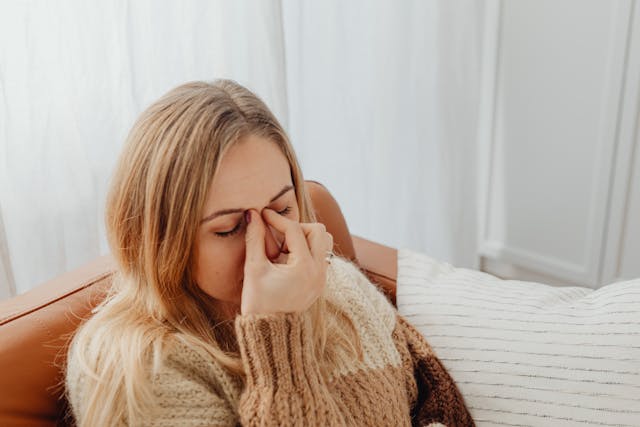
How Allergies Can Lead to Sinus Infections
When you suffer from allergies, your immune system overreacts to harmless substances like pollen, pet dander, mold, and dust mites. This overreaction causes inflammation in the nasal passages, leading to swelling, mucus production, and congestion.
Here’s how allergies can trigger sinus infections:
- Swollen Nasal Tissues: Allergy-induced swelling blocks normal mucus drainage from the sinuses, creating a moist environment where bacteria can thrive.
- Increased Mucus Production: Allergies cause excessive mucus production, which can become trapped and infected.
- Weakened Immune Response: Constant allergic reactions can weaken your body’s ability to fight off infections effectively.
Signs That Allergies Are Leading to Sinus Infections
Recognizing the connection between your allergies and sinus infections can help you seek timely treatment. Warning signs include:
- Frequent or recurrent sinus infections (more than four times a year)
- Sinus infections that last longer than 10 days or worsen after initial improvement
- Persistent nasal congestion, postnasal drip, and facial pressure during allergy seasons
- Difficulty breathing through the nose combined with allergy symptoms like sneezing and itchy eyes
Preventing Allergy-Related Sinus Infections
Breaking the cycle of allergies leading to sinus infections requires a proactive approach. Dr. Sneeze recommends the following strategies:
1. Control Your Allergies
Managing allergies is the first line of defense against sinus infections. Treatment options include:
- Antihistamines: Help reduce allergic reactions and nasal inflammation.
- Nasal Corticosteroids: Relieve nasal swelling and promote normal sinus drainage.
- Allergy Immunotherapy (Allergy Shots): Gradually desensitize your immune system to specific allergens, providing long-term relief.
2. Practice Good Nasal Hygiene
Keeping your nasal passages clear can prevent mucus buildup and infection:
- Use saline nasal sprays or perform nasal irrigation with a neti pot to flush out allergens and mucus.
- Keep indoor air clean with HEPA filters and maintain proper humidity levels.
- Avoid exposure to known allergens whenever possible, especially during high pollen seasons.
3. Seek Early Treatment for Allergy Symptoms
Don’t wait until symptoms worsen. Early treatment from an allergist like Dr. Sneeze can help control inflammation before it leads to infection. If you notice a pattern of sinus infections tied to your allergy flare-ups, it’s time for a comprehensive allergy evaluation.
Treatment Options for Sinus Infections
If sinus infections do occur, effective treatment can prevent complications:
- Decongestants: Help reduce sinus swelling and promote drainage.
- Antibiotics: Prescribed if a bacterial infection is confirmed and symptoms are severe or persistent.
- Advanced Procedures: For chronic sinusitis, minimally invasive options like balloon sinuplasty can restore proper sinus drainage.
Why See an Allergist for Allergy-Related Sinus Problems?
Seeing a specialist like Dr. Sneeze ensures a complete evaluation of both your allergies and sinus health. At Allergy, Asthma and Sinusitis P.C., you’ll receive:
- Comprehensive allergy and sinus diagnostics
- Customized treatment plans based on your specific triggers and symptoms
- Access to the latest therapies to prevent future infections and improve quality of life
The Link Between Allergies and Sinus Infections: Contact NYC’s Leading Allergy and Sinus Expert
For many New Yorkers, seasonal allergies are more than just a nuisance — they can lead to chronic sinus problems that severe
If you’re tired of the endless cycle of allergies and sinus infections, expert help is just a call away. Schedule an appointment with Dr. Boyan Hadjiev, “Dr. Sneeze,” at:
Allergy, Asthma and Sinusitis P.C
Dr. Boyan Hadjiev
30 East 40th Street
Suite 1200
New York, NY 10016
212-319-5282
Take control of your allergies and sinus health today with personalized care from NYC’s top allergist. Breathe easier, feel better, and live your best life!
Sinusitis: Causes, Symptoms, and Treatment Options
In this guide, we’ll explain the causes, symptoms, and most effective treatment options for sinusitis, helping you find lasting relief. Sinusitis is a common yet often misunderstood condition that affects millions of people each year. It can lead to persistent nasal congestion, headaches, facial pressure, and even difficulty breathing. For residents of New York City, sinusitis can be particularly challenging due to environmental pollutants, allergens, and seasonal weather changes.

What Is Sinusitis?
Sinusitis, or a sinus infection, occurs when the tissues lining the sinuses become inflamed. This inflammation can cause blockages, leading to mucus buildup, bacterial growth, and uncomfortable symptoms.
Sinusitis can be classified into different types based on duration:
- Acute Sinusitis: Symptoms last less than four weeks, often caused by viral infections like the common cold.
- Chronic Sinusitis: Symptoms persist for more than 12 weeks and are often linked to allergies, nasal polyps, or structural abnormalities.
- Recurrent Sinusitis: Multiple episodes of sinusitis occur throughout the year, often indicating an underlying immune or allergy-related issue.
What Causes Sinusitis?
Several factors can contribute to sinusitis, including:
- Viral Infections: The most common cause, typically following a cold or flu.
- Bacterial Infections: When sinus blockages persist, bacteria can grow, leading to bacterial sinusitis.
- Allergies: Seasonal allergies can cause nasal inflammation, increasing the risk of sinus infections.
- Environmental Irritants: NYC air pollution, cigarette smoke, and strong odors can trigger sinus inflammation.
- Nasal Polyps: Growths in the nasal passages that obstruct proper sinus drainage.
- Deviated Septum: A structural issue that affects airflow and mucus drainage.
Symptoms of Sinusitis
Sinusitis symptoms can vary in severity but commonly include:
- Persistent nasal congestion or stuffiness
- Facial pain or pressure, especially around the forehead, cheeks, and eyes
- Thick nasal discharge (yellow or green in color)
- Postnasal drip (mucus dripping down the throat)
- Headache, particularly in the morning
- Bad breath or loss of smell
- Coughing that worsens at night
- Fatigue due to poor sleep caused by congestion
If symptoms persist for more than 10 days, or if they worsen after initially improving, it may indicate bacterial sinusitis, which could require medical treatment.
Effective Treatment Options for Sinusitis
Dr. Sneeze provides a range of effective treatments for sinusitis, based on the severity and underlying causes of your condition:
1. Medications for Symptom Relief
- Nasal Decongestants: Help reduce nasal swelling and improve drainage.
- Antihistamines: Useful if allergies are a contributing factor.
- Nasal Corticosteroids: Reduce inflammation in the nasal passages.
- Antibiotics: Prescribed only for bacterial sinus infections that don’t resolve on their own.
2. Allergy Treatment for Sinus Relief
If allergies are triggering or worsening your sinusitis, Dr. Sneeze may recommend:
Allergy Testing: Identifies specific allergens contributing to sinus issues.
- Immunotherapy (Allergy Shots): Helps reduce sensitivity to allergens over time.
- Lifestyle Modifications: Recommendations for reducing allergen exposure in your home and workplace.
3. Advanced Sinus Treatments
For chronic or severe cases, additional treatments may be necessary:
- Saline Nasal Irrigation: Rinses away irritants and mucus buildup using a neti pot or saline spray.
- Balloon Sinuplasty: A minimally invasive procedure that opens blocked sinuses for better drainage.
- Surgical Intervention: In rare cases, surgery may be required to remove nasal polyps or correct a deviated septum.
Preventive Measures to Reduce Sinus Infections
Taking steps to prevent sinusitis can reduce the frequency and severity of symptoms. Top allergists in NYC recommend:
- Using a humidifier to keep nasal passages moist during dry winter months.
- Avoiding cigarette smoke and air pollution whenever possible.
- Staying hydrated to help thin mucus and promote proper drainage.
- Practicing good hand hygiene to prevent colds and viral infections.
- Managing allergies effectively to reduce nasal inflammation.
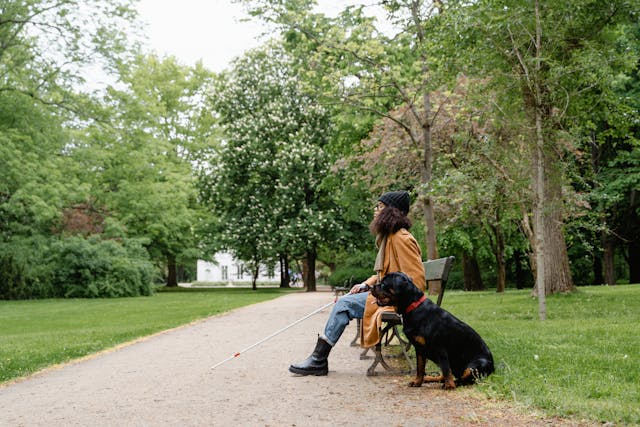
When to See an Allergist for Sinus Issues
If you suffer from frequent sinus infections, persistent nasal congestion, or sinus headaches, seeing an allergist can help identify the underlying causes and provide targeted treatment. A experienced and qualified allergist will offer:
- Comprehensive sinus and allergy testing.
- Personalized treatment plans for lasting relief.
- Minimally invasive procedures to improve sinus drainage.
Sinusitis: Causes, Symptoms, and Treatment Options
: Contact NYC’s Leading Sinus and Allergy Specialist
Don’t let sinusitis disrupt your life. With expert care, you can breathe easier and prevent recurring infections. Dr. Boyan Hadjiev, MD, “Dr. Sneeze,” is dedicated to helping NYC residents find long-term relief from sinus issues. Schedule an appointment today:
Allergy, Asthma and Sinusitis P.C
Boyan Hadjiev, MD
30 East 40th Street
Suite 1200
New York, NY 10016
212-319-5282
Take control of your sinus health with the expertise of NYC’s leading allergist. Book your appointment today and start feeling better!
Managing Asthma in NYC: A Guide to Breathing Easier
What are the best ways to go about managing asthma in NYC? Living in a big city comes with many benefits, but for those with asthma, urban life can also present unique challenges. From air pollution and seasonal allergens to stress and crowded spaces, city environments can trigger or worsen asthma symptoms. However, with the right management strategies, you can reduce flare-ups and maintain control over your condition.

Boyan Hadjiev, MD, widely known as “Dr. Sneeze,” is a top NYC allergist specializing in asthma care. In this guide, he shares expert insights on managing asthma effectively in an urban setting, so you can breathe easier and enjoy city life without constant worry.
Understanding Asthma: Causes and Symptoms
Asthma is a chronic respiratory condition that causes inflammation and narrowing of the airways, leading to symptoms such as:
- Wheezing: A high-pitched whistling sound when breathing.
- Shortness of Breath: Difficulty inhaling and exhaling properly.
- Coughing: Often worse at night or early in the morning.
- Chest Tightness: A feeling of pressure or discomfort in the chest.
Why Asthma Can Be Worse in a Big City
Living in a metropolitan area like New York City means daily exposure to a variety of asthma triggers. These can include:
- Air Pollution: Vehicle exhaust, industrial emissions, and airborne particulates can worsen asthma symptoms.
- Pollen and Seasonal Allergies: Trees, grass, and ragweed pollen are common triggers, especially in spring and fall.
- Indoor Allergens: Dust mites, pet dander, mold, and cockroach droppings can accumulate in apartments, offices, and public spaces.
- Weather Changes: Cold, dry air in the winter and high humidity in the summer can cause airway irritation.
- Stress and Anxiety: The fast pace of city life and high stress levels can exacerbate asthma symptoms.

Effective Strategies for Managing Asthma in a City Environment
1. Identifying and Avoiding Triggers
The first step to asthma management is recognizing your triggers and minimizing exposure. Some helpful strategies include:
- Checking the daily air quality index (AQI) and pollen count before heading outside.
- Using an air purifier with a HEPA filter at home to reduce airborne allergens.
- Keeping windows closed during high-pollution days and peak allergy seasons.
- Avoiding outdoor exercise near traffic-heavy areas to reduce inhalation of pollutants.
2. Using Medications Correctly
Asthma medications help keep symptoms under control. Your treatment plan may include:
- Quick-Relief Inhalers (Bronchodilators): Used for immediate relief during asthma attacks.
- Controller Medications: Long-term medications, such as inhaled corticosteroids, help prevent symptoms and flare-ups.
- Biologic Therapies: Advanced treatments for severe asthma that target specific immune responses.
Regular follow-ups with your allergist can ensure that your medication plan remains effective.
3. Creating an Asthma Action Plan
Work with Dr. Sneeze to develop a personalized asthma action plan. This plan should include:
- Your daily medication schedule.
- Early warning signs of an asthma attack and what steps to take.
- Emergency instructions in case of a severe attack.
4. Lifestyle Adjustments to Improve Asthma Control
Beyond medication, making simple lifestyle changes can significantly improve your asthma symptoms:
- Exercise Safely: Engage in low-impact activities like swimming, yoga, or indoor workouts during high-pollution days.
- Stay Hydrated: Drinking enough water can help keep airways clear and reduce mucus buildup.
- Manage Stress: Mindfulness, meditation, and deep breathing exercises can help reduce anxiety-related asthma attacks.
- Reduce Household Allergens: Wash bedding regularly, use hypoallergenic covers, and keep your living space clean.
Why See an Allergist for Asthma?
If asthma symptoms are interfering with your daily life, it’s important to see an allergist for specialized care. Dr. Sneeze offers:
- Comprehensive allergy and asthma testing.
- Customized treatment plans tailored to your lifestyle.
- Advanced asthma therapies, including biologic treatments and immunotherapy.
Managing Asthma in NYC: Contact NYC’s Leading Allergist
Don’t let asthma control your life. With the right care and strategies, you can breathe easier and enjoy everything NYC has to offer. Dr. Boyan Hadjiev, MD, “Dr. Sneeze,” is dedicated to helping asthma sufferers live symptom-free. Schedule an appointment today:
Allergy, Asthma and Sinusitis P.C
Boyan Hadjiev, MD
30 East 40th Street
Suite 1200
New York, NY 10016
212-319-5282
Take the first step toward better asthma control with expert guidance from NYC’s top allergist.
Common Allergies: Symptoms and Treatments
This brief blog dives into understanding common allergies: symptoms and treatments to provide insights into symptoms, causes, and effective treatments. Allergies, asthma, and sinusitis are common conditions that can significantly impact quality of life. With proper care and treatment, managing these conditions becomes easier, allowing individuals to enjoy a healthier, symptom-free lifestyle.
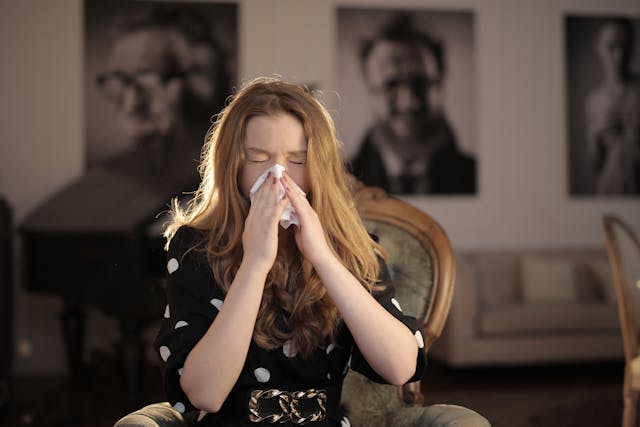
What Causes Allergy and Asthma Symptoms?
Allergies occur when the immune system overreacts to harmless substances such as pollen, pet dander, or dust mites. Asthma, often triggered by allergens or irritants, causes inflammation in the airways, leading to difficulty breathing. Sinusitis, a condition where the sinuses become inflamed, can result from allergies, infections, or structural issues.
Triggers to Watch Out For
- Environmental Allergies: These include seasonal pollen allergies, mold sensitivity, and reactions to indoor dust or pet dander.
- Food Allergies: Reactions to foods like peanuts, shellfish, or dairy can range from mild to life-threatening.
- Sinus Triggers: Bacteria, viruses, or allergens can lead to sinus inflammation and infections.
Managing Symptoms with Modern Treatments
- Allergy Medications: Antihistamines, decongestants, and nasal sprays provide quick relief from allergy symptoms.
- Immunotherapy: Allergy shots or tablets are a long-term solution to reducing sensitivity to allergens.
- Sinus Treatments: Options range from antibiotics for bacterial infections to minimally invasive procedures like balloon sinuplasty.
Tips for Preventing Flare-Ups
Preventive care is essential for managing these conditions effectively. Simple measures such as using air purifiers, avoiding known allergens, and maintaining proper hydration can reduce the frequency and severity of symptoms.
How a Specialist Can Help
Consulting a board-certified NYC allergist is the best way to ensure accurate diagnosis and effective treatment. At Allergy, Asthma and Sinusitis P.C., expert care focuses on using the latest research and techniques to deliver personalized treatment plans.
Common Allergies Symptoms and Treatments: Contact Us Today
Don’t let allergies or asthma hold you back – contact Allergy, Asthma and Sinusitis P.C. today to schedule your consultation.
Allergy, Asthma and Sinusitis P.C
Boyan Hadjiev, MD
30 East 40th Street
New York, NY
212-319-5282
How to Prepare for an Allergy Test
This blog post will guide you through the necessary steps to get ready for your allergy test, from understanding the different types of tests available to managing your medications and lifestyle. When you suspect you may have allergies, an allergy test can provide valuable insights into the specific allergens that trigger your symptoms. To ensure the accuracy and effectiveness of the test, it’s essential to prepare adequately. By following these guidelines, you can maximize the benefits of the test and take control of your allergies.

How to Prepare for an Allergy Test
1. Stop Certain Medications
Consult your allergist about stopping antihistamines and other medications that can interfere with test results. Typically, you should stop taking antihistamines 7-10 days before the test.
2. Discuss Medical History
Provide your allergist with a detailed medical history, including any symptoms, triggers, and past allergic reactions.
3. Avoid Perfumes and Lotions
On the day of the test, avoid using perfumes, lotions, or other skin products that might affect test results.
4. Wear Comfortable Clothing
Wear loose, comfortable clothing that allows easy access to your arms and back, where skin tests are typically performed.
5. Eat Normally
There is usually no need to fast before an allergy test unless instructed otherwise by your doctor.
Preparing for an Allergy Test: Conclusion
Preparing for an allergy test requires careful consideration of various factors, including medications, medical history, skin products, clothing choices, and specific instructions from your allergist. By following these guidelines, you can significantly improve the accuracy and effectiveness of the test, leading to a more accurate diagnosis and effective treatment plan. Remember to communicate openly with your allergist and ask any questions you may have to ensure a successful allergy testing experience.
Are you struggling with allergies? Let Dr. Boyan Hadjiev at Allergy, Asthma and Sinusitis P.C. help. Schedule your appointment today for expert allergy testing and personalized treatment plans.
Allergy, Asthma and Sinusitis P.C
Boyan Hadjiev, MD
30 East 40th Street
New York, NY
212-319-5282
Natural Remedies for Allergy Relief
While modern medicine offers valuable treatments for allergies, many people are turning to natural remedies as a complementary approach. These plant-based options can provide relief from allergy symptoms without the potential side effects of conventional medications. In this blog post, we’ll explore a variety of natural remedies that have been shown to be effective in managing allergies, allowing you to find the best approach for your individual needs.
Natural Remedies for Allergy Relief
1. Local Honey
Consuming local honey may help build immunity to local pollen. Start with a small amount and gradually increase.
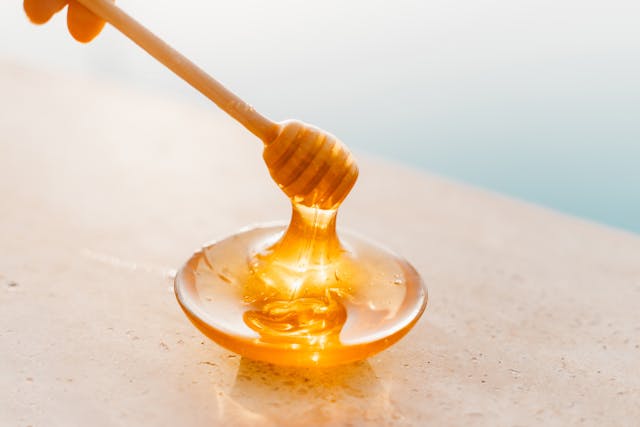
2. Saline Nasal Rinse
Using a saline nasal rinse can help clear out allergens from your nasal passages, reducing congestion and irritation.
3. Quercetin
Quercetin, a natural plant flavonoid, can help stabilize mast cells and prevent the release of histamine. Foods rich in quercetin include apples, berries, and onions.
4. Probiotics
Probiotics can help balance the immune system and reduce the severity of allergic reactions. Yogurt, kefir, and fermented foods are good sources.
5. Butterbur
Butterbur is an herb that has been shown to reduce symptoms of hay fever and other allergic reactions. Look for butterbur supplements labeled “PA-free” to ensure they are free of harmful alkaloids.
6. Stinging Nettle
Stinging nettle has natural anti-inflammatory properties that can help reduce allergy symptoms. It can be taken as a tea, tincture, or supplement.
7. Essential Oils
Certain essential oils, such as peppermint, eucalyptus, and lavender, can help alleviate allergy symptoms. Use them in a diffuser or apply them topically (diluted with a carrier oil).

Natural Remedies for Allergy: Conclusion
While natural remedies can offer a valuable complement to traditional allergy treatments, it’s essential to approach them with caution and seek guidance from a qualified allergist. By understanding the potential benefits and limitations of these options, you can make informed decisions about your allergy management. Remember that a personalized approach, combining natural remedies with conventional treatments as needed, can help you find the optimal solution for your individual needs.
For personalized allergy treatment plans and advice on natural remedies, contact Dr. Boyan Hadjiev at Allergy, Asthma and Sinusitis P.C. Our team is here to help you manage your allergies effectively.
Allergy, Asthma and Sinusitis P.C
Boyan Hadjiev, MD
30 East 40th Street
Suite 1200
New York, NY 10016
212-319-5282
Tips for Living with Severe Allergies
Living with severe allergies can be a daily challenge, but with proactive management, you can significantly improve your quality of life. This blog post offers practical tips to help you minimize exposure to allergens and effectively control symptoms. Whether you suffer from seasonal allergies, food sensitivities, or other allergic conditions, these strategies can make a meaningful difference in your well-being.
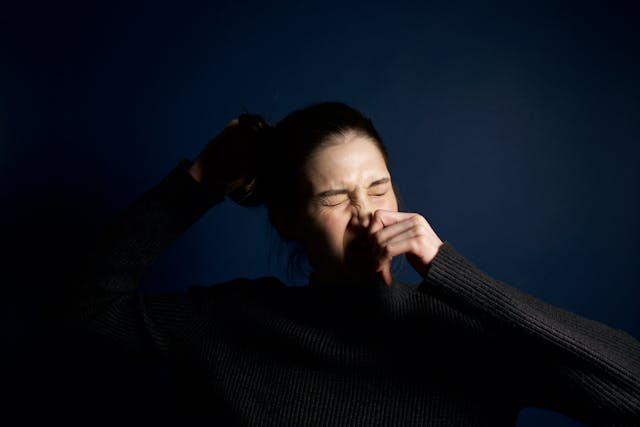
1. Identify and Avoid Triggers
Identify your specific allergens through testing and avoid them whenever possible. This includes food allergens, environmental triggers, and pet dander.
2. Create an Allergy-Free Home
Keep your home clean and allergen-free by using air purifiers, vacuuming regularly with a HEPA filter vacuum, and using hypoallergenic bedding. Control humidity levels to prevent mold growth.
3. Follow a Medication Plan
Work with your allergist to develop a medication plan that includes daily maintenance medications and emergency treatments like epinephrine auto-injectors.
4. Wear a Medical ID
Wear a medical ID bracelet that lists your allergies. This can be crucial in emergencies when you might not be able to communicate.
5. Plan for Eating Out
When dining out, inform the restaurant staff about your allergies and ask detailed questions about food preparation. Consider carrying allergy cards that clearly state your allergies.
6. Regular Medical Checkups
Regular visits to your allergist are important for monitoring your condition and adjusting your treatment plan as needed.
7. Emergency Preparedness
Always have an emergency action plan in place, including knowing the location of the nearest hospital and having quick access to emergency medications.
Tips for Living with Severe Allergies: Conclusion
While living with severe allergies can be demanding, remember that effective management is possible. By following the tips outlined in this blog post, you can take control of your symptoms, reduce exposure to allergens, and enjoy a higher quality of life. Remember to consult with a healthcare professional for personalized advice and support. With the right strategies in place, you can thrive despite your allergies.
For personalized advice and comprehensive allergy management, contact Dr. Boyan Hadjiev at Allergy, Asthma and Sinusitis P.C. Our dedicated team is here to help you live comfortably with severe allergies.
Contact Information
Allergy, Asthma and Sinusitis P.C
Boyan Hadjiev, MD
30 East 40th Street
New York, NY 10016
212-319-5282
Understanding Food Allergies
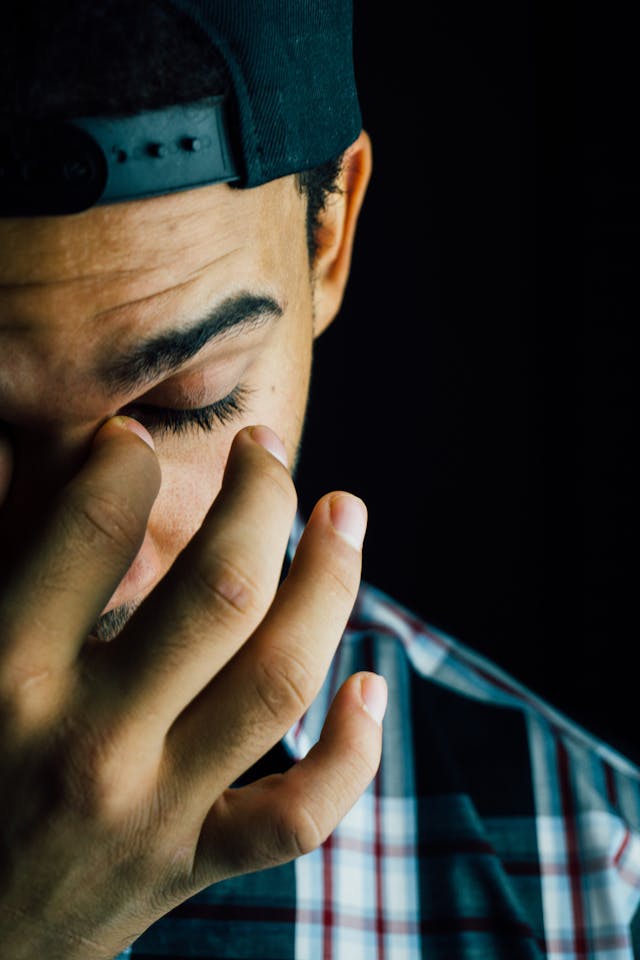 Food allergies are immune system responses to certain foods that the body mistakenly identifies as harmful. These reactions can range from mild to severe and can affect various parts of the body. Here’s what you need to know:
Food allergies are immune system responses to certain foods that the body mistakenly identifies as harmful. These reactions can range from mild to severe and can affect various parts of the body. Here’s what you need to know:
Understanding Food Allergies
1. Common Allergens
The most common food allergens, often referred to as the “Big Eight,” include milk, eggs, peanuts, tree nuts, soy, wheat, fish, and shellfish. These foods account for the majority of allergic reactions.
2. Symptoms
Symptoms of food allergies can vary widely and may include hives, swelling, stomach pain, vomiting, diarrhea, respiratory issues, and anaphylaxis—a severe, potentially life-threatening reaction. Symptoms usually appear within minutes to a few hours after consuming the allergen.
3. Diagnosis
Diagnosing food allergies typically involves a combination of medical history, dietary review, skin prick tests, blood tests, and oral food challenges. An allergist will evaluate these results to confirm the allergy.
4. Managing Food Allergies
The primary way to manage food allergies is strict avoidance of the allergen. This requires careful reading of food labels, awareness of cross-contamination risks, and clear communication with restaurants and food preparers. In case of accidental exposure, individuals should have an emergency action plan, which includes carrying epinephrine auto-injectors.
5. Living with Food Allergies
Living with food allergies involves being proactive and prepared. It’s important to educate family, friends, and caregivers about the allergy and how to recognize and respond to symptoms. Joining support groups and staying informed about new treatments and research can also help.
Understanding Food Allergies: Conclusion
Understanding and managing food allergies is crucial for ensuring safety and maintaining quality of life. By knowing common allergens, recognizing symptoms, and having a solid management plan, individuals with food allergies can effectively navigate their daily lives.
For comprehensive food allergy diagnosis and management, contact Dr. Boyan Hadjiev at Allergy, Asthma and Sinusitis P.C. Our team is committed to providing expert care and personalized treatment plans.
Boyan Hadjiev, MD
212-319-5282
Latest Research on Allergy Treatments
What is the latest research on allergy treatments? Advancements in allergy treatments are continually emerging, providing hope for more effective management of allergies. Here are some of the latest developments:
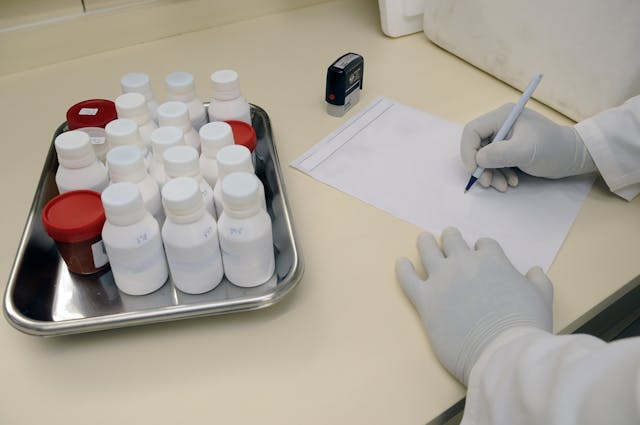
1. Biologic Therapies
Biologic therapies, such as monoclonal antibodies, target specific components of the immune system involved in allergic reactions. Omalizumab (Xolair) is a biologic used to treat asthma and chronic idiopathic urticaria (hives). It works by binding to immunoglobulin E (IgE) antibodies, preventing them from triggering allergic responses.
2. Sublingual Immunotherapy (SLIT)
SLIT, a method of allergy immunotherapy, involves placing allergen tablets or drops under the tongue. It has been shown to be effective for treating grass, ragweed, and dust mite allergies. Research is ongoing to expand its use to other allergens.
3. Oral Immunotherapy (OIT)
OIT involves consuming gradually increasing amounts of an allergen under medical supervision. This method is primarily used for food allergies, such as peanut and egg allergies, with the goal of increasing tolerance and reducing the severity of allergic reactions.
4. New Allergy Medications
Researchers are developing new medications that target specific pathways involved in allergic reactions. For example, Fevipiprant is an investigational drug that inhibits a specific receptor involved in asthma and other allergic conditions, showing promise in clinical trials.
5. Gene Therapy
Gene therapy is an emerging field that aims to modify or replace defective genes responsible for allergic responses. While still in the experimental stages, gene therapy holds potential for long-term solutions to allergies.
6. Probiotics and Microbiome Research
Studies are exploring the role of the gut microbiome in allergies. Probiotics, which are beneficial bacteria, may help modulate the immune system and reduce allergic responses. Ongoing research aims to identify specific probiotics that could be used as part of allergy treatment.
7. Epigenetics
Epigenetic research is investigating how environmental factors can influence gene expression related to allergies. Understanding these mechanisms could lead to new prevention and treatment strategies.
8. Allergen-Specific Immunotherapy Vaccines
Scientists are developing allergen-specific vaccines that could provide long-lasting protection against allergies. These vaccines aim to induce tolerance to specific allergens, reducing the need for ongoing treatment.
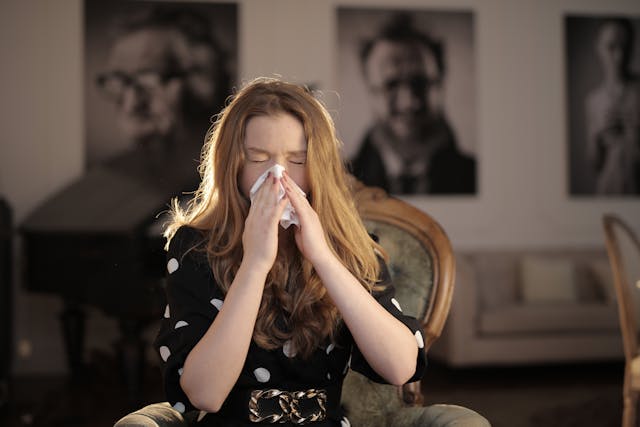
Latest Research on Allergy Treatments: Conclusion
The latest research in allergy treatments offers promising advancements in managing and potentially curing allergies. From biologic therapies and immunotherapy to gene therapy and microbiome research, these innovations provide new hope for individuals suffering from allergies.
For expert advice and the latest treatments in allergy management, contact “Dr. Sneeze”, Dr. Boyan Hadjiev at Allergy, Asthma and Sinusitis P.C. in New York City. Dr. Hadjiev and his team are dedicated to providing cutting-edge allergy care tailored to your needs.
Allergy, Asthma and Sinusitis P.C
Boyan Hadjiev, MD
30 East 40th Street
Suite 1200
New York, NY 10016
212-319-5282
Common Misconceptions About Allergies
 Allergies can be a frustrating and sometimes debilitating condition. Despite their prevalence, many common misconceptions about allergies persist. From confusing allergies with sensitivities, to believing they’re just a minor annoyance, these misunderstandings can lead to ineffective treatment and unnecessary discomfort. Let’s debunk some of the most common myths surrounding allergies and explore the truth about this widespread health issue.
Allergies can be a frustrating and sometimes debilitating condition. Despite their prevalence, many common misconceptions about allergies persist. From confusing allergies with sensitivities, to believing they’re just a minor annoyance, these misunderstandings can lead to ineffective treatment and unnecessary discomfort. Let’s debunk some of the most common myths surrounding allergies and explore the truth about this widespread health issue.
Common Misconceptions About Allergies
1. Allergies are Just a Nuisance
Many believe allergies are minor inconveniences, but they can significantly impact quality of life and, in severe cases, be life-threatening.
2. You Can Outgrow Allergies
While some children may outgrow certain food allergies, others, such as peanut or shellfish allergies, often persist into adulthood.
3. Hypoallergenic Pets Don’t Cause Allergies
No pet is entirely hypoallergenic. All pets produce dander, saliva, and urine, which can trigger allergies.
4. Moving to a New Location Can Cure Allergies
Moving might provide temporary relief, but allergens are prevalent everywhere. New environmental allergens might replace the old ones.
5. Allergies and Colds Are the Same
Allergies and colds share symptoms but have different causes. Allergies result from immune responses to allergens, while colds are viral infections.
6. Natural Remedies Are Always Safe
Natural doesn’t always mean safe. Some herbal treatments can interact with medications or cause allergic reactions themselves.
Common Misconceptions About Allergies: Conclusion
Understanding these misconceptions helps in managing allergies effectively. Educating yourself and seeking professional advice is crucial for accurate diagnosis and treatment.
For reliable information and expert allergy care, contact Dr. Boyan Hadjiev at Allergy, Asthma and Sinusitis P.C. in NYC. Our team provides comprehensive allergy management and treatment plans.
Allergy, Asthma and Sinusitis P.C. | Boyan Hadjiev, MD
212-319-5282
Serving all of New York City and the Tri State Area including Zip Codes: Top Allergist NYC Midtown, Chelsea and Clinton: 10001, 10011, 10018, 10019, 10020, 10036 | Gramercy Park and Murray Hill: 10010, 10016, 10017, 10022 | Greenwich Village and Soho: 10012, 10013, 10014 | Lower Manhattan: 10004, 10005, 10006, 10007, 10038, 10280 | Lower East Side: 10002, 10003, 10009 | Upper East Side: 10021, 10028, 10044, 10128 | Upper West Side: 10023, 10024, 10025


